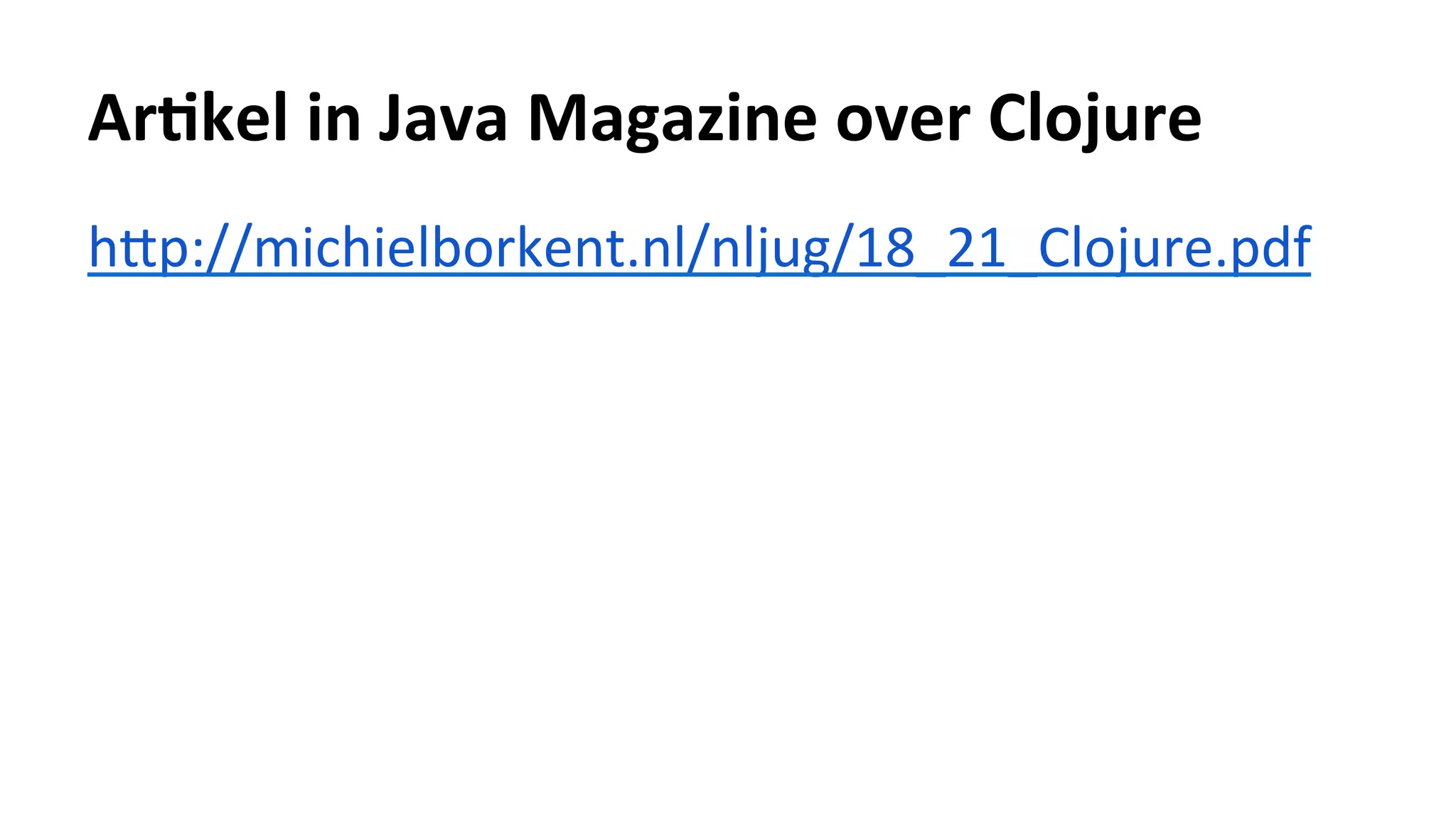This document provides an overview of functional programming concepts like first-class functions, pure functions, and immutable data structures. It discusses functional programming languages like Haskell, Scala, and Clojure and provides examples of code in each. The document also covers core FP topics like avoiding side effects, persistent data structures, and functional patterns in Clojure like atoms for mutable state and macros.
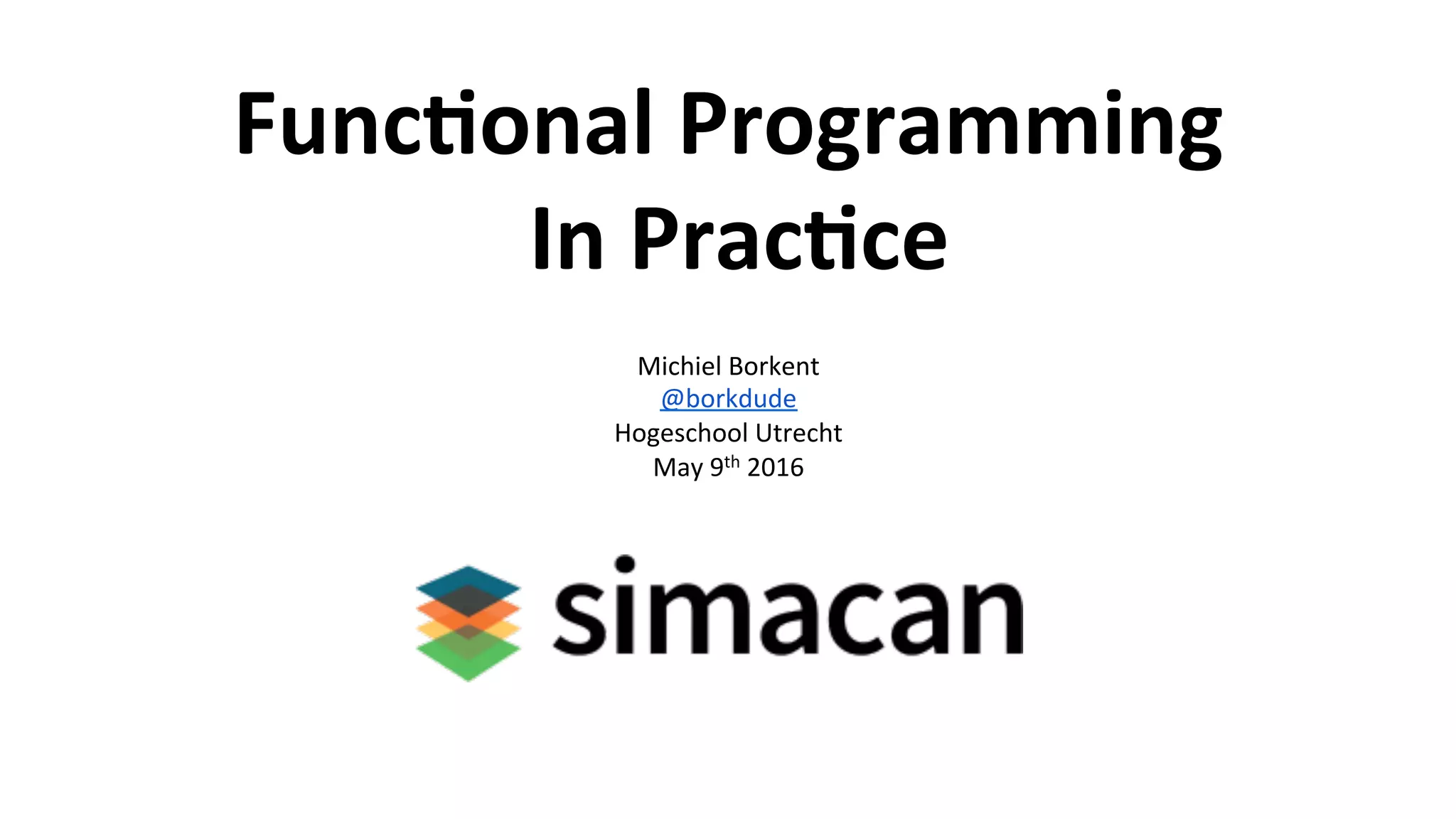
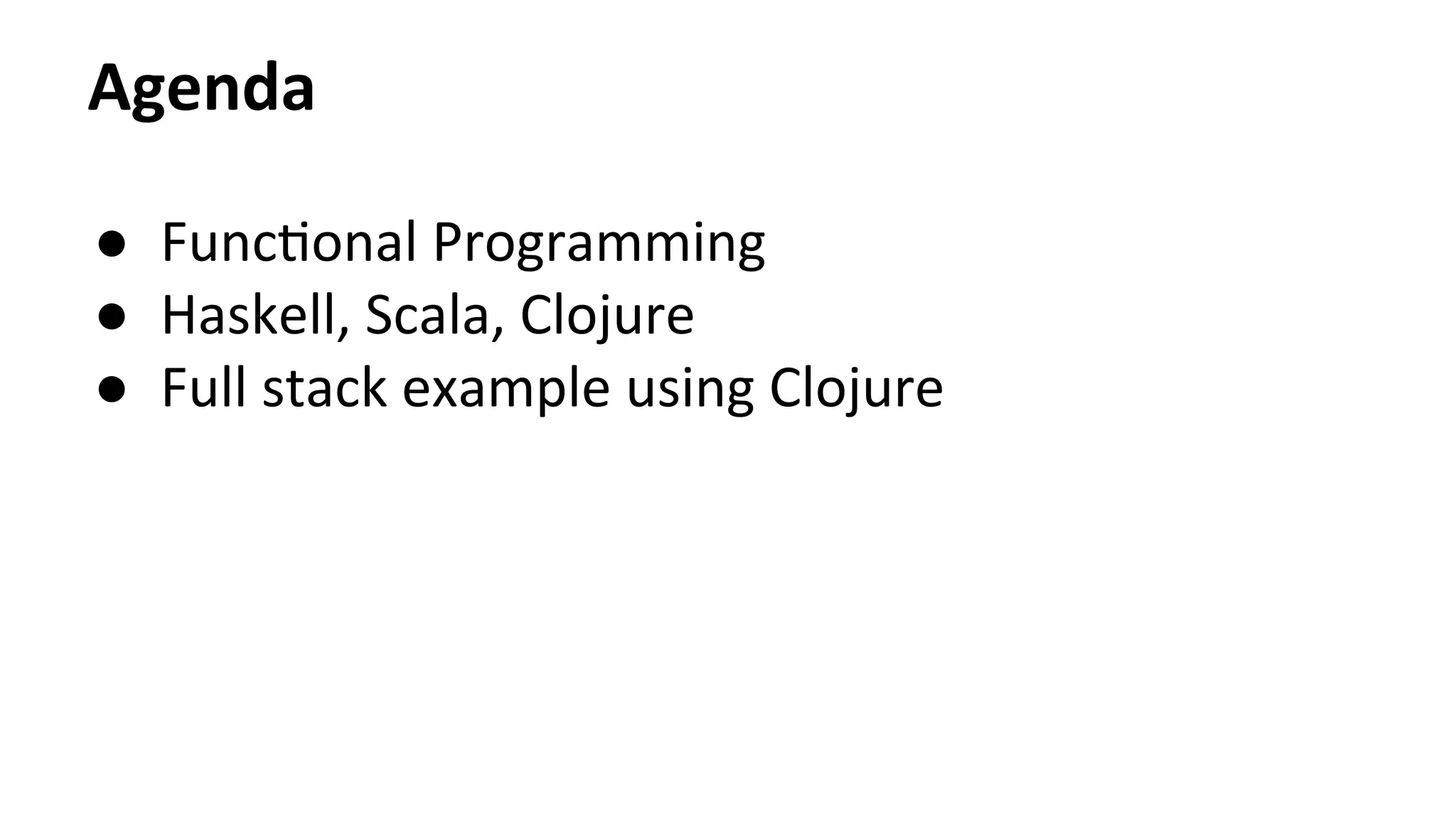
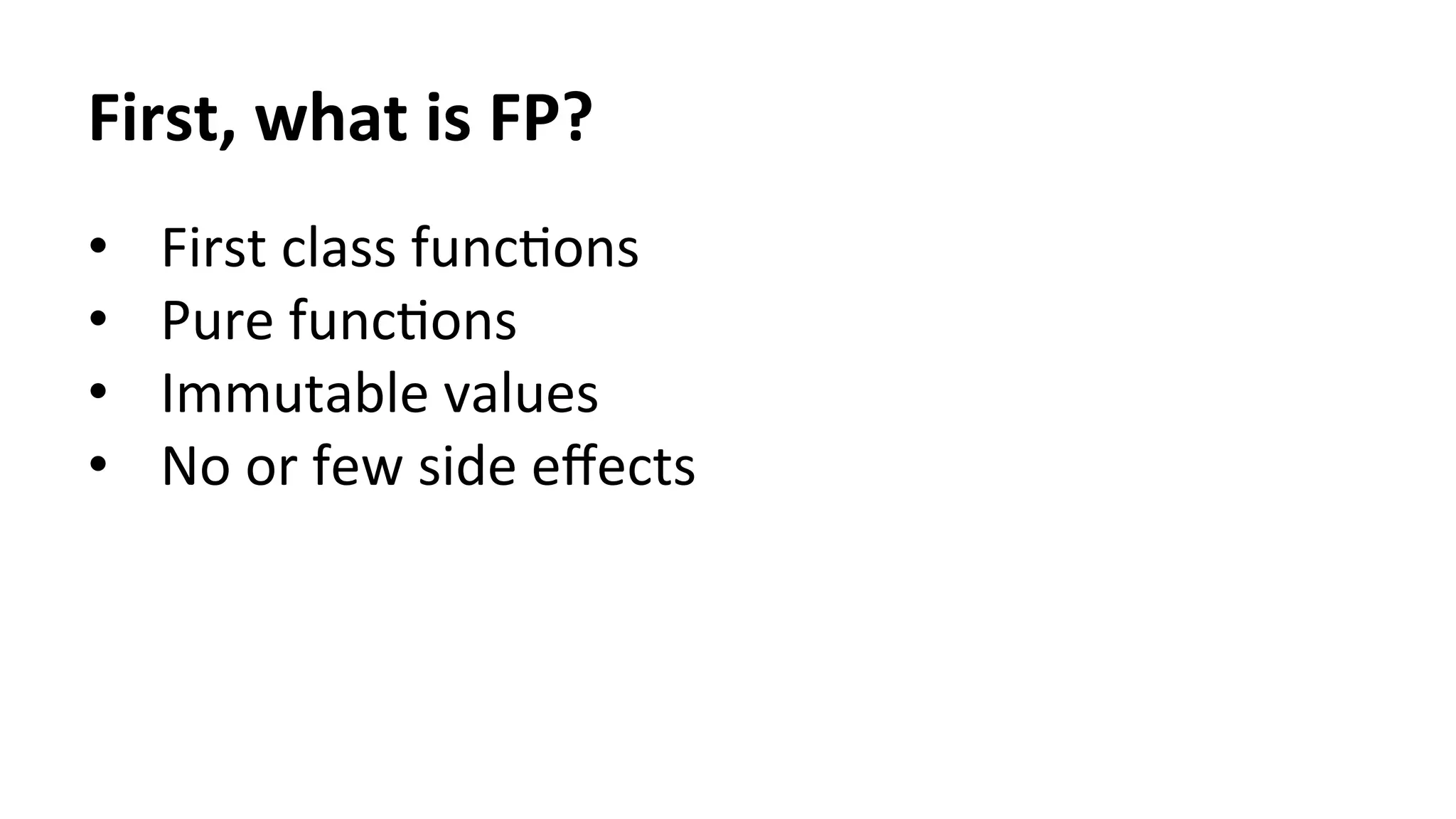
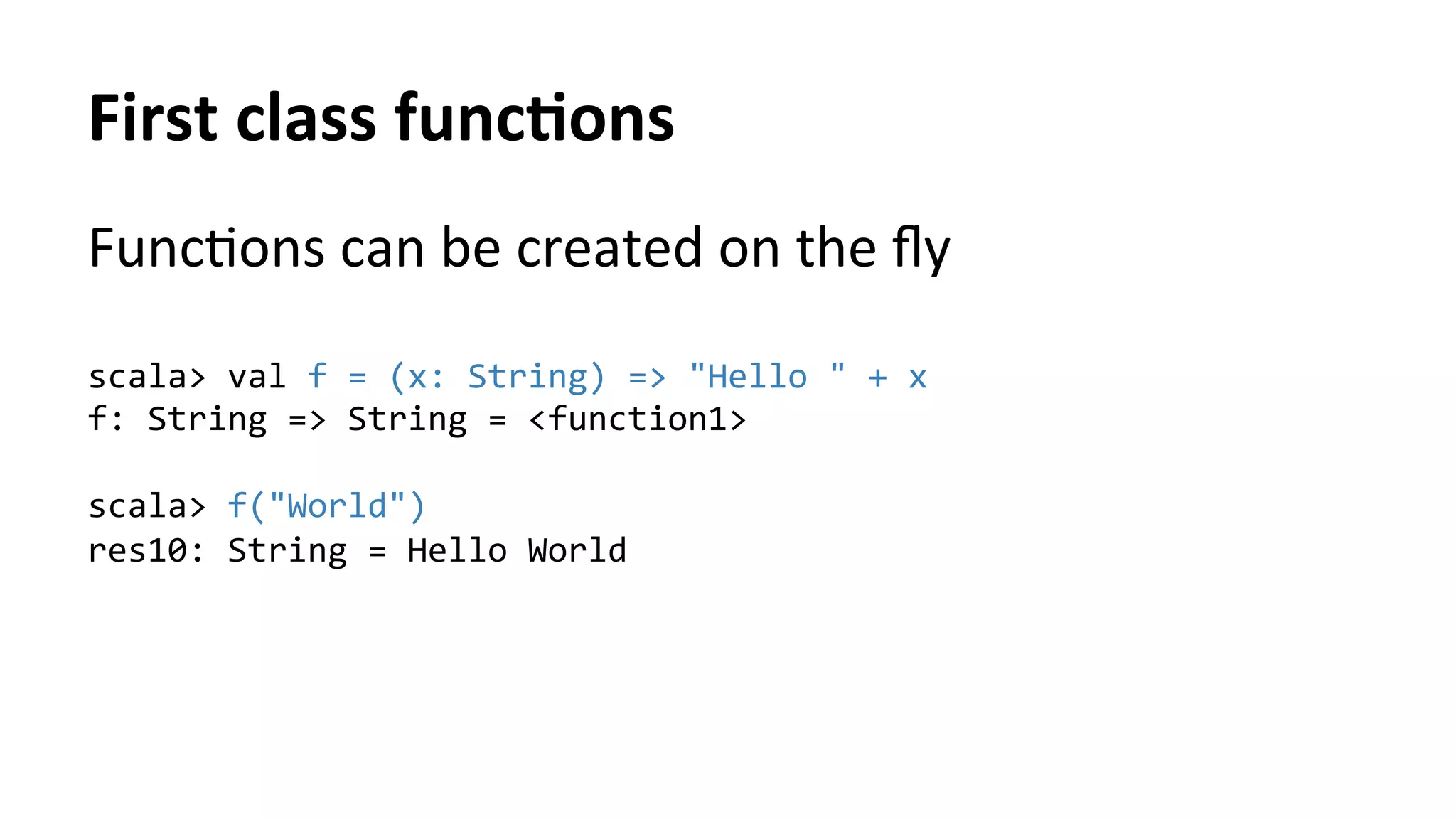
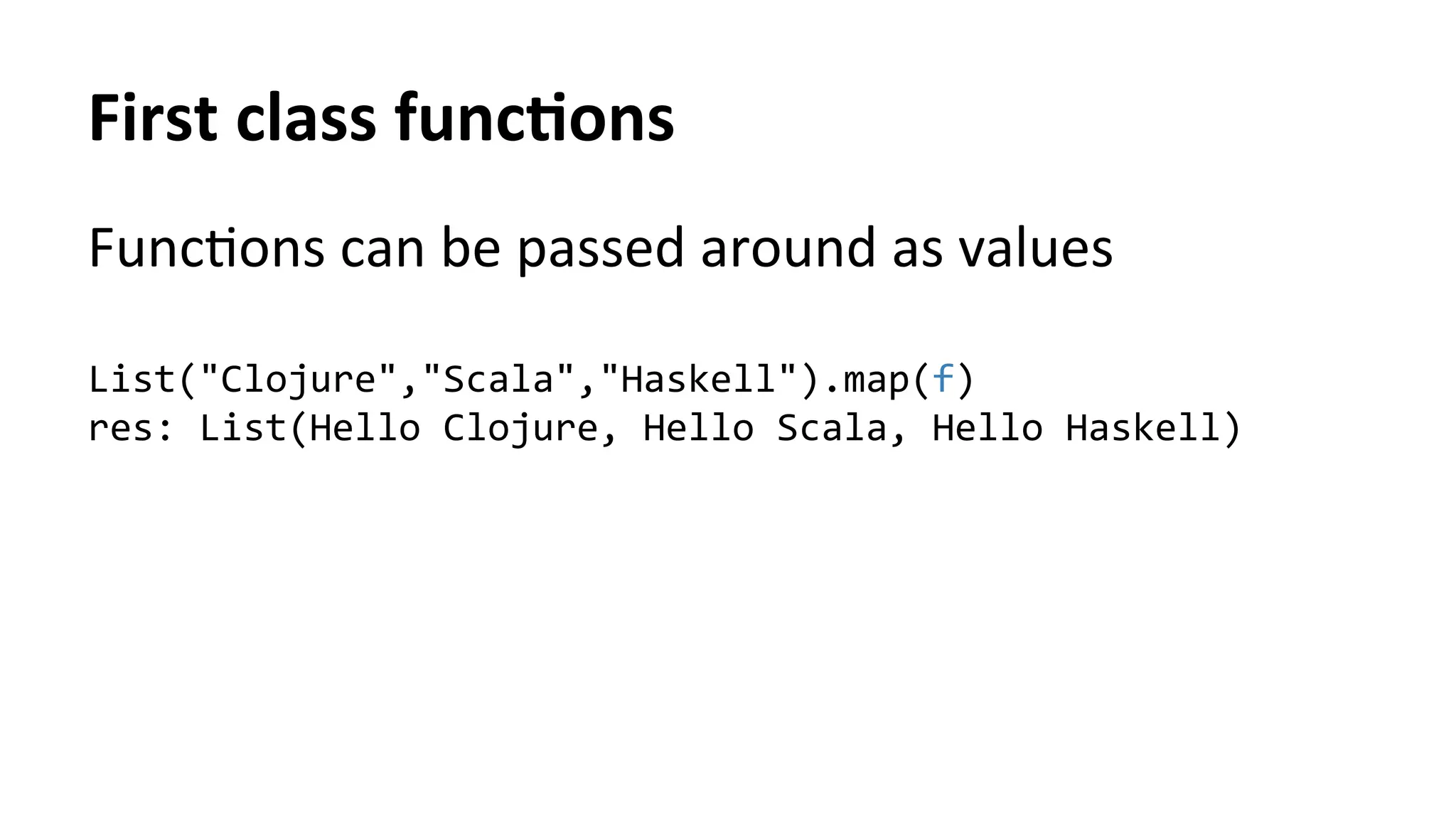
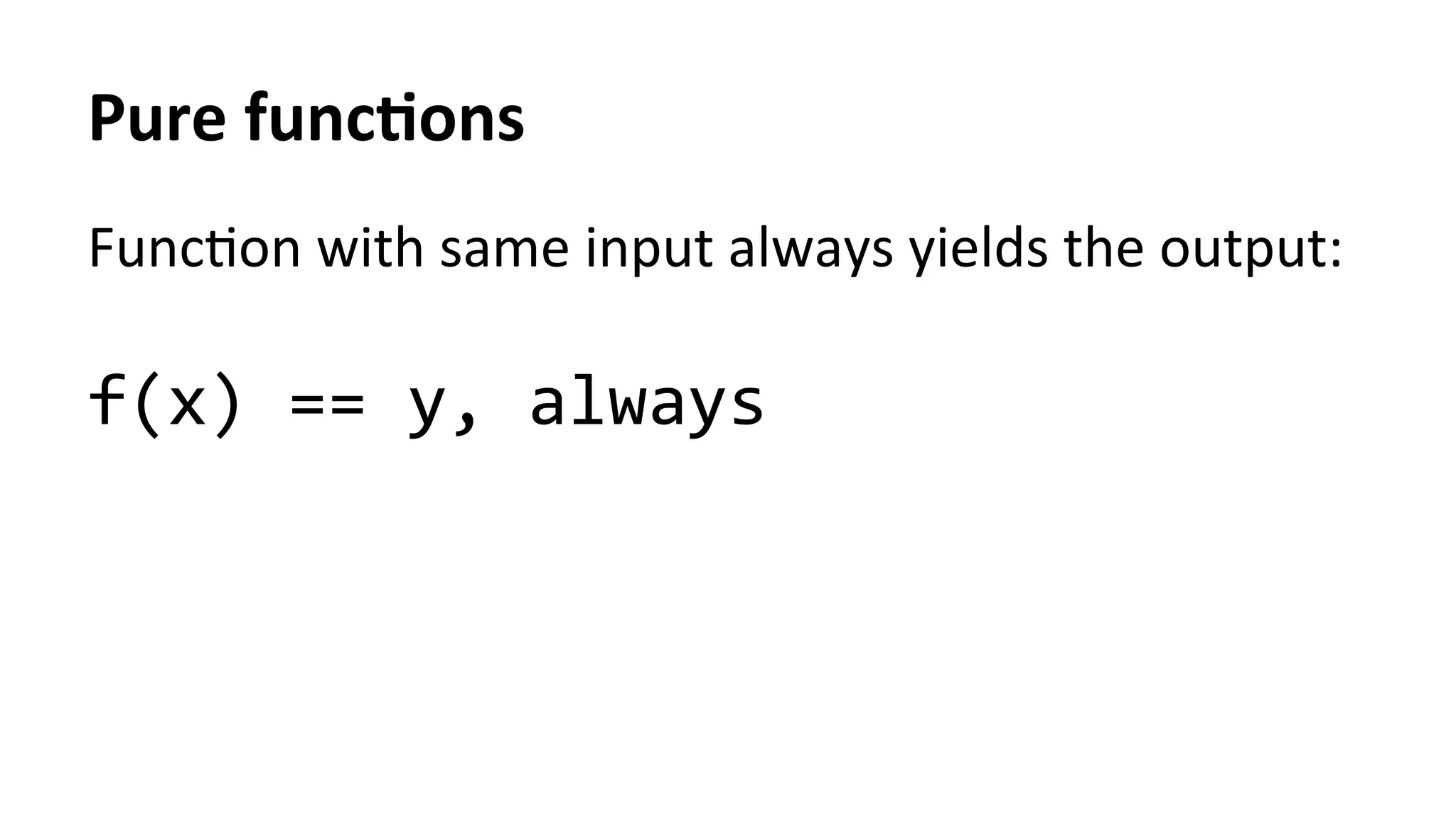
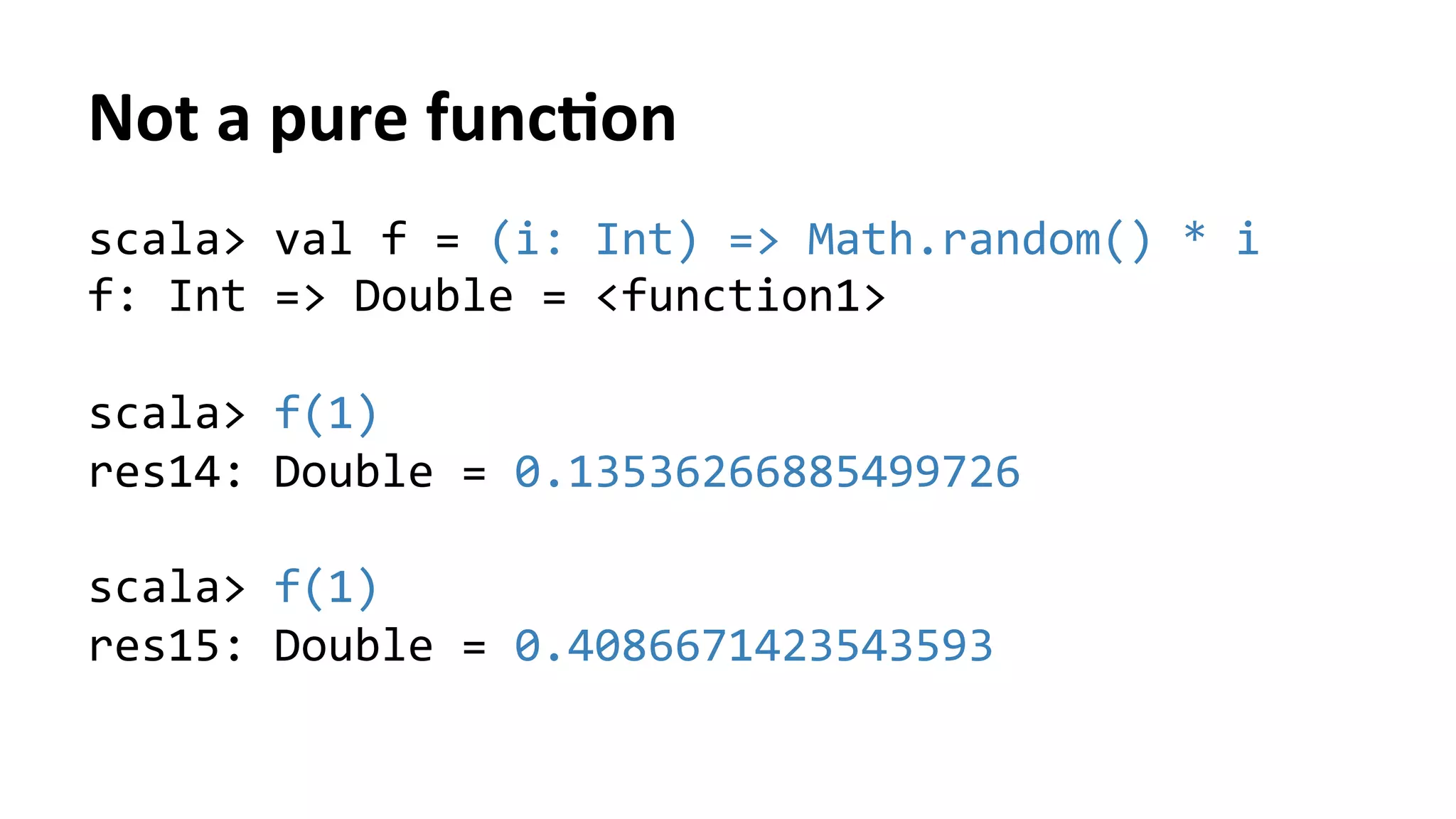
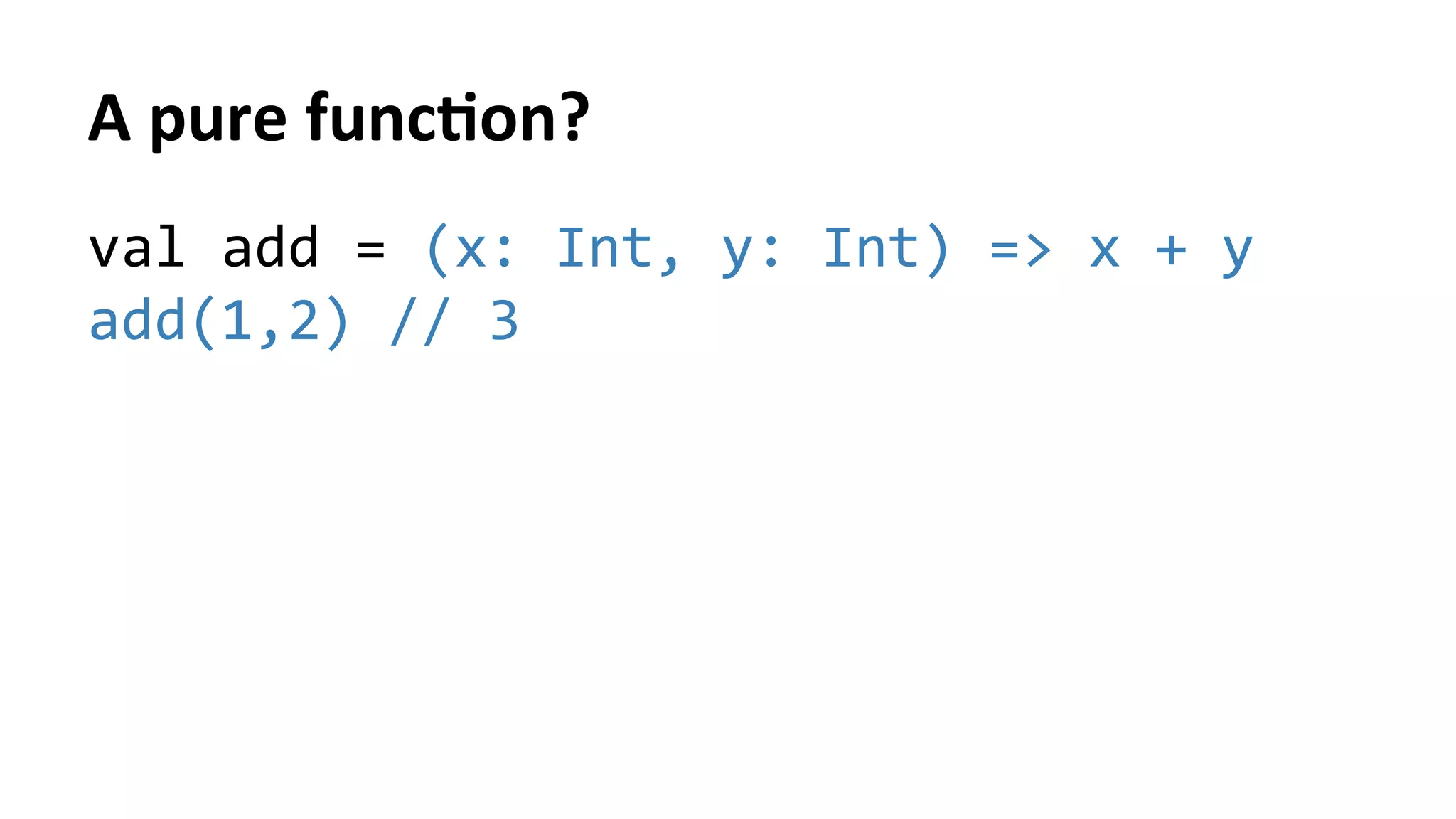
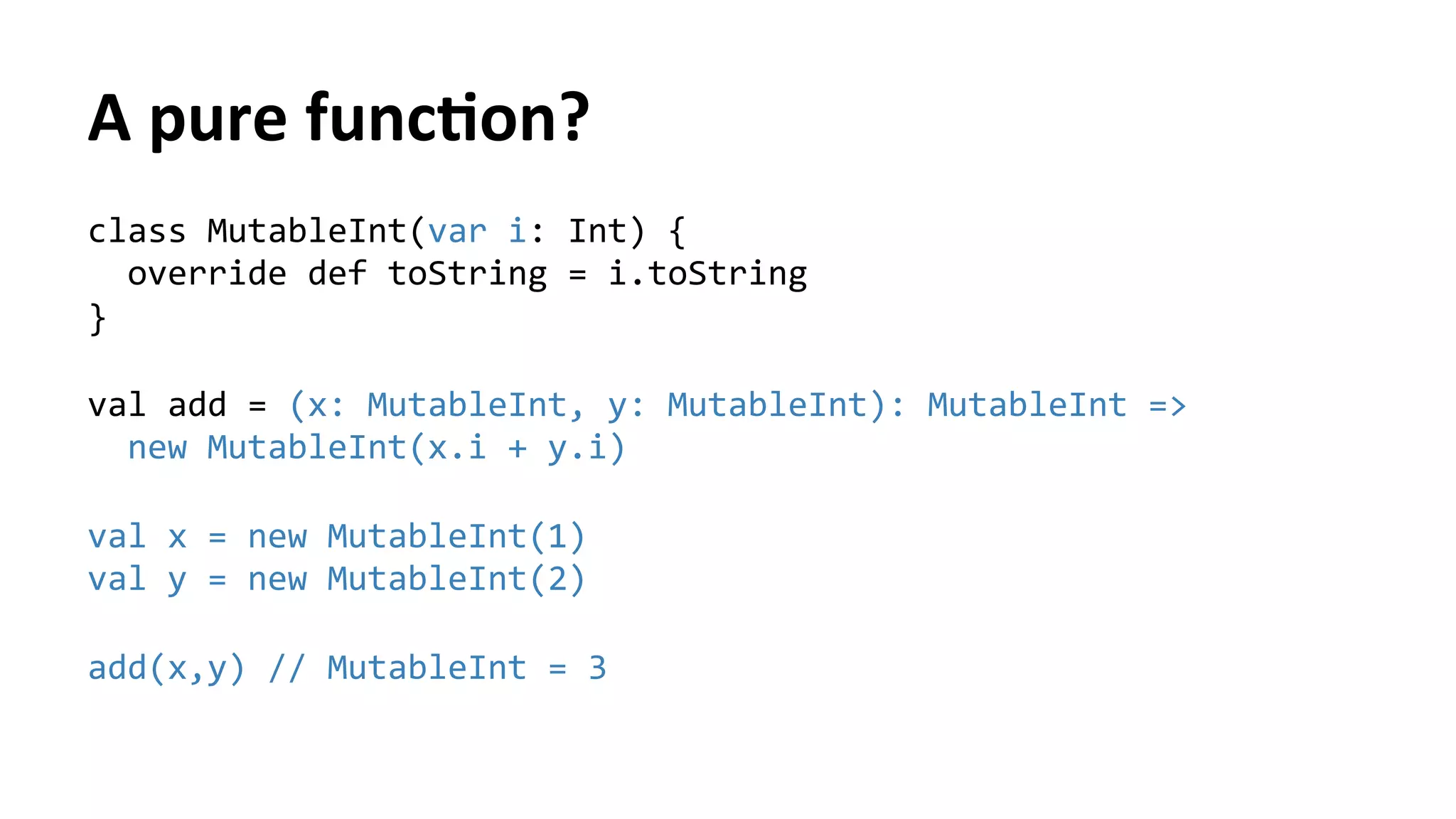
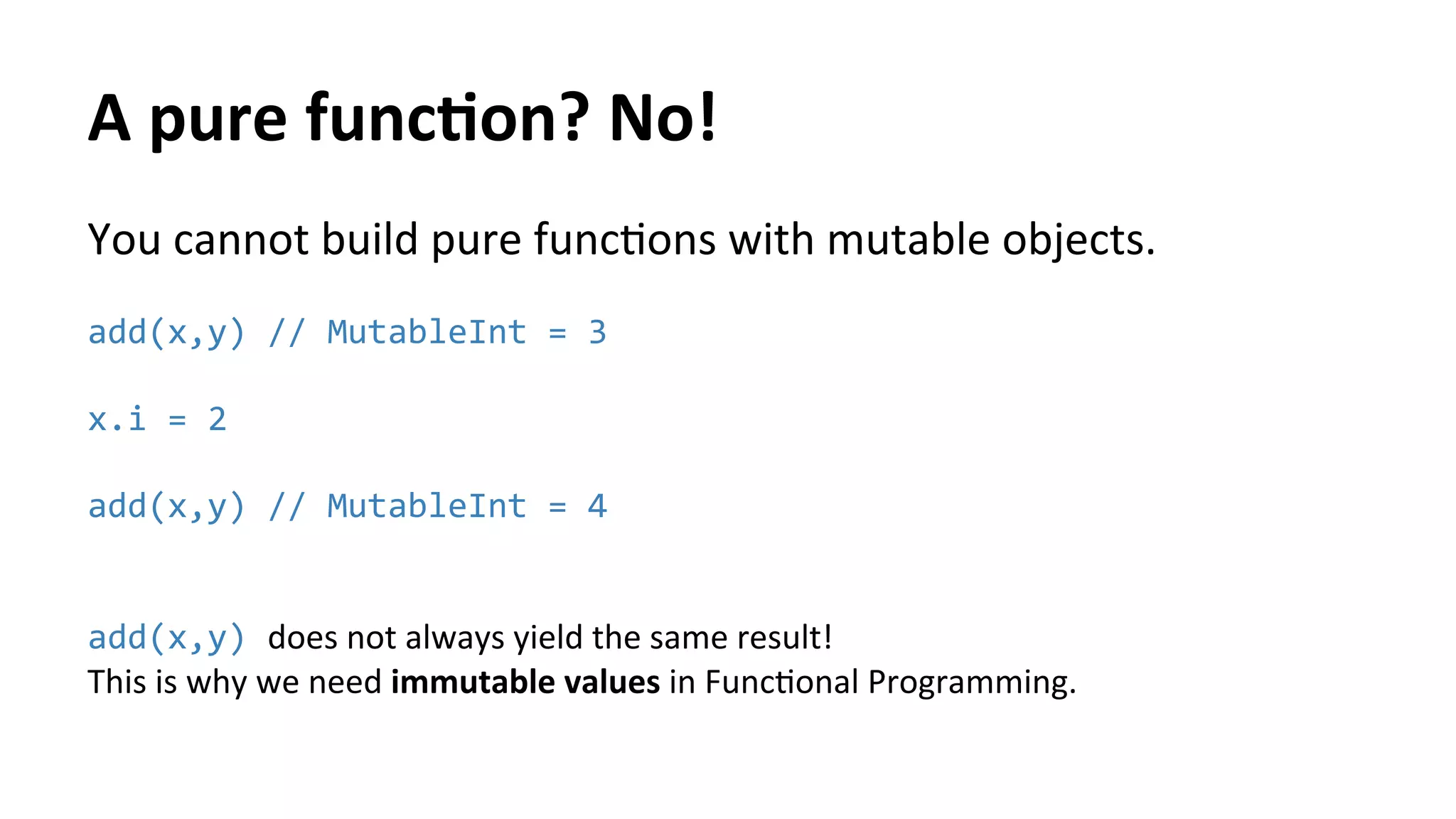
![A pure func%on? List(1,2,3) is immutable. def addZero(l: List[Int]) = 0 :: l addZero(List(1,2,3)) // List(0, 1, 2, 3)](https://image.slidesharecdn.com/hu-may-2016-160509160958/75/Functional-Programming-In-Practice-11-2048.jpg)
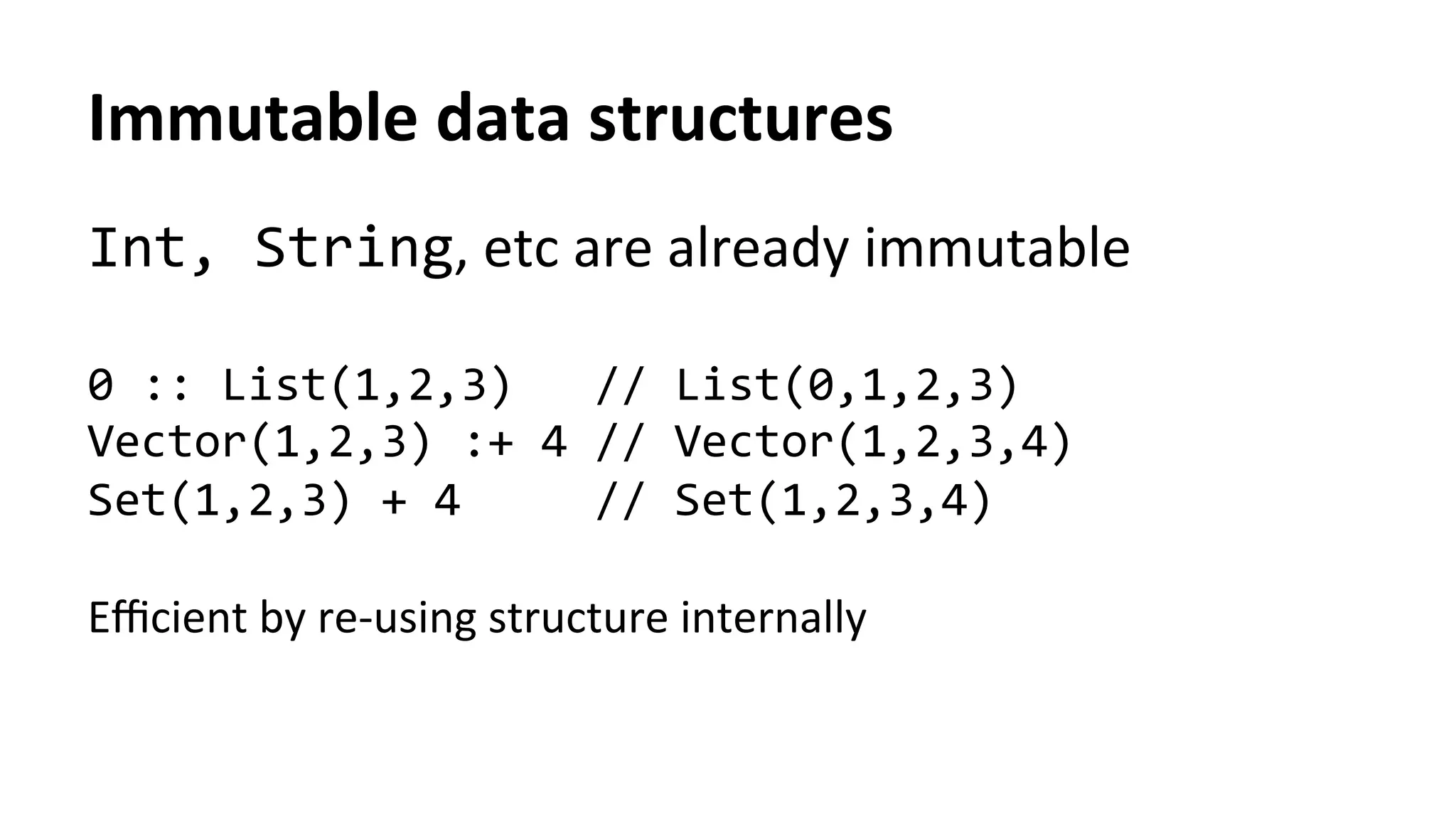
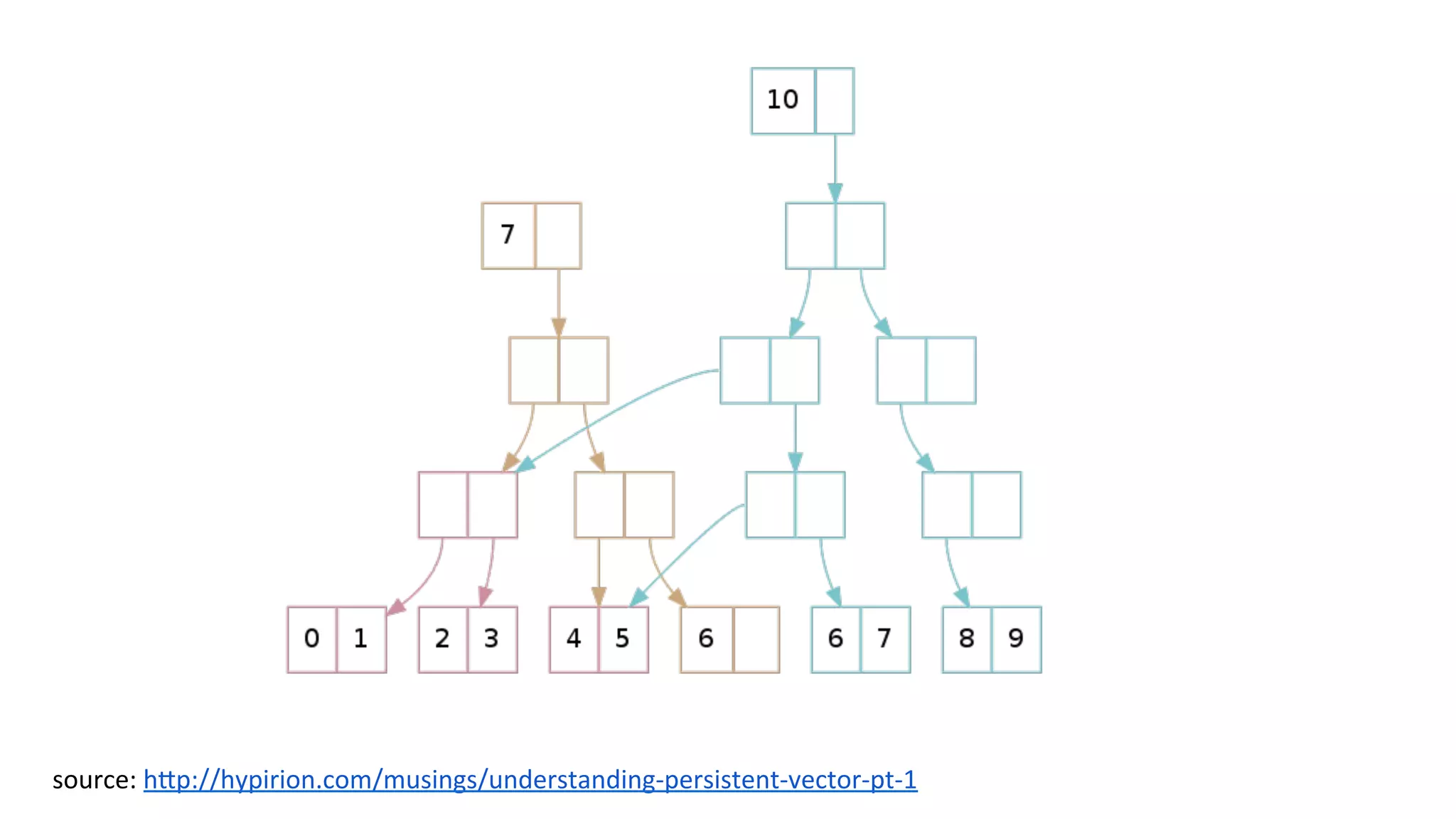
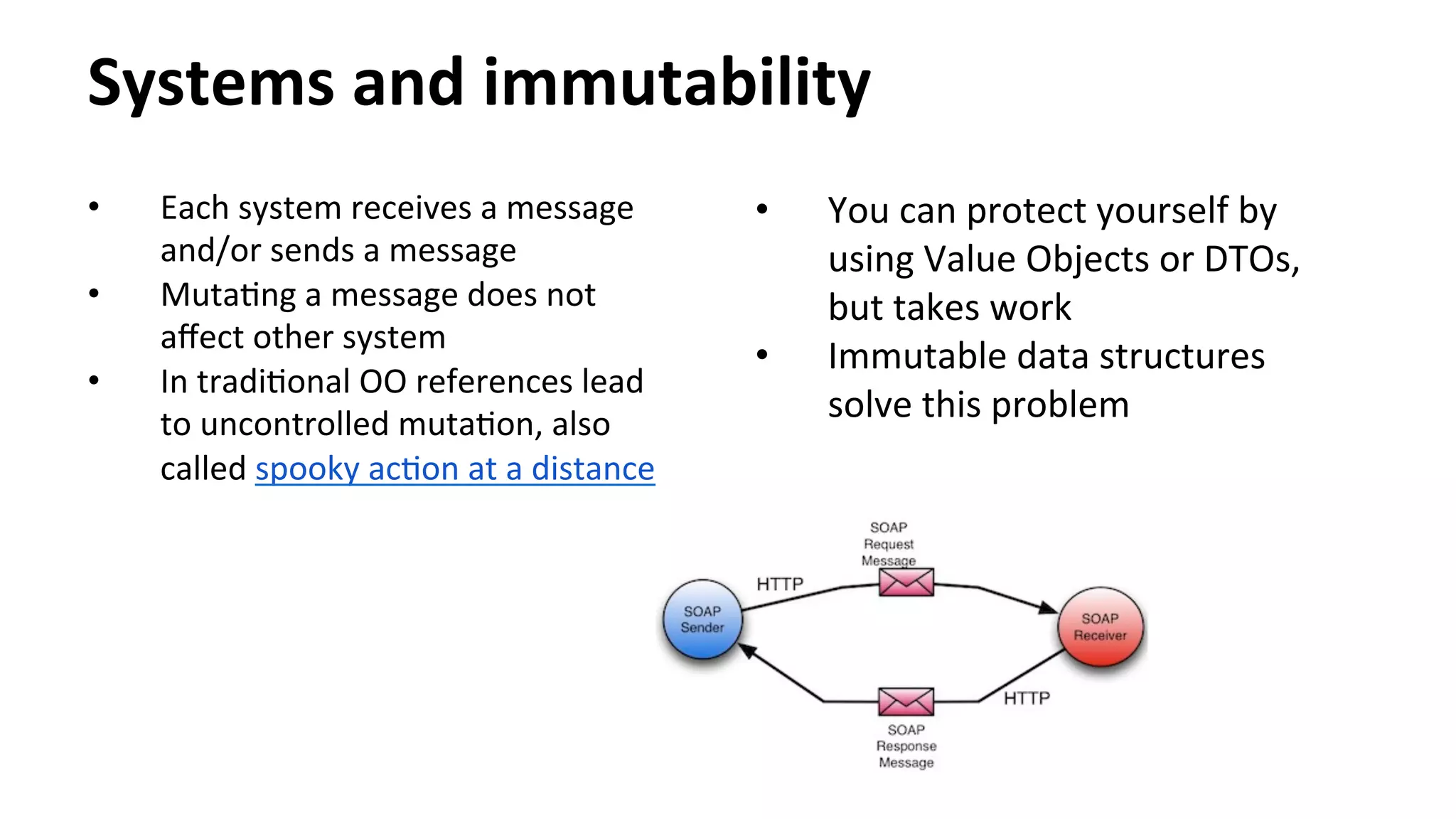
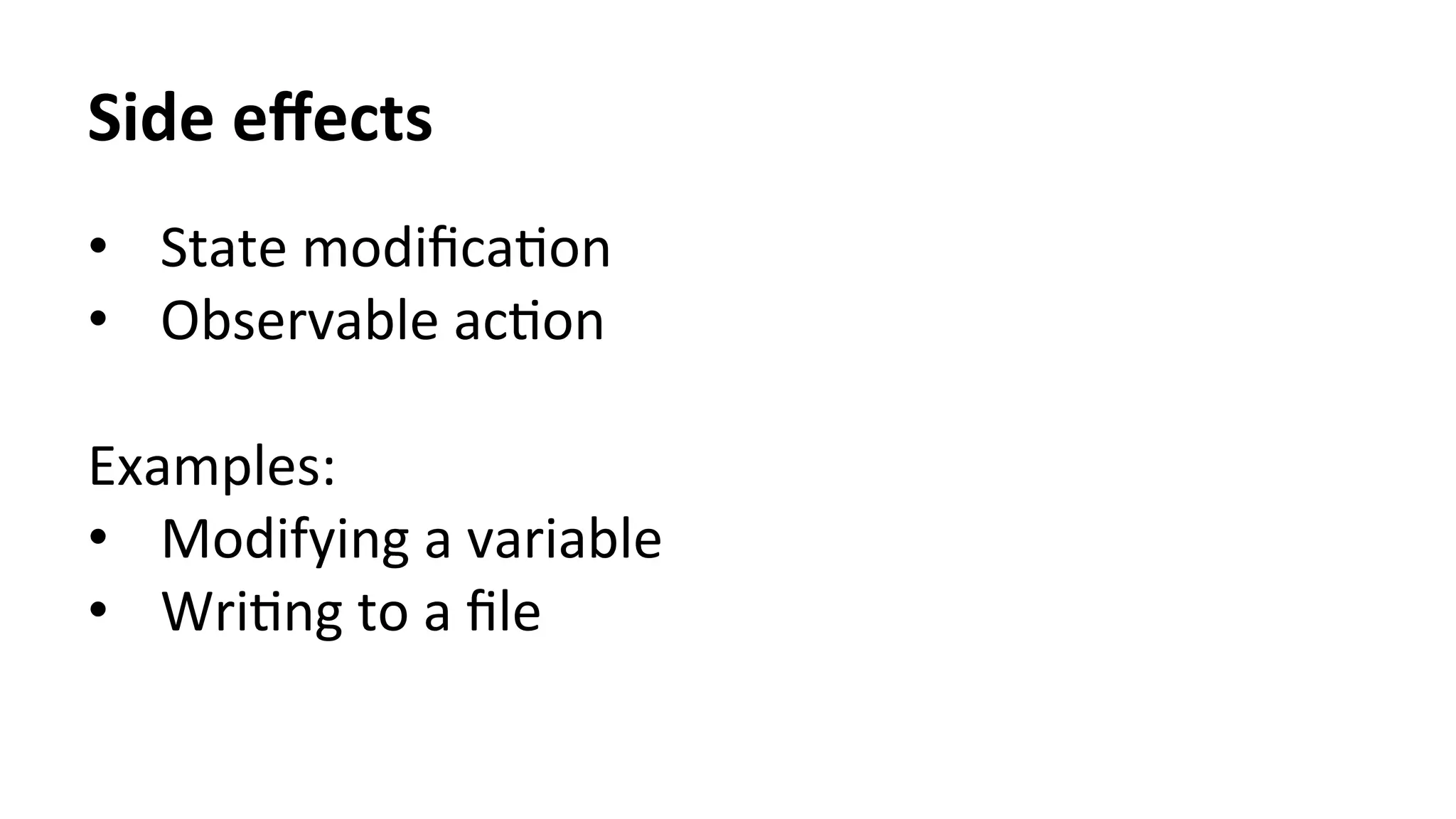
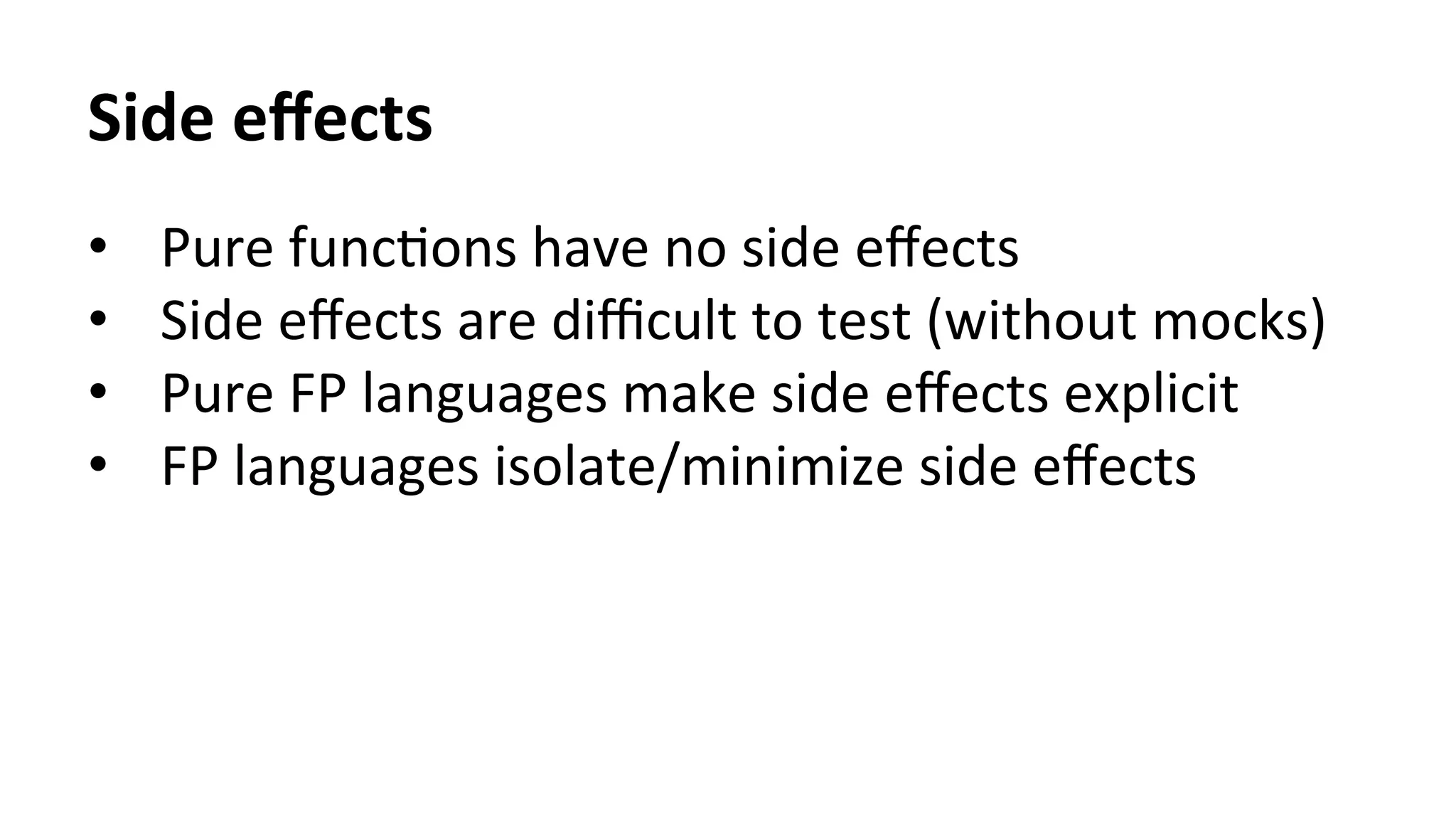
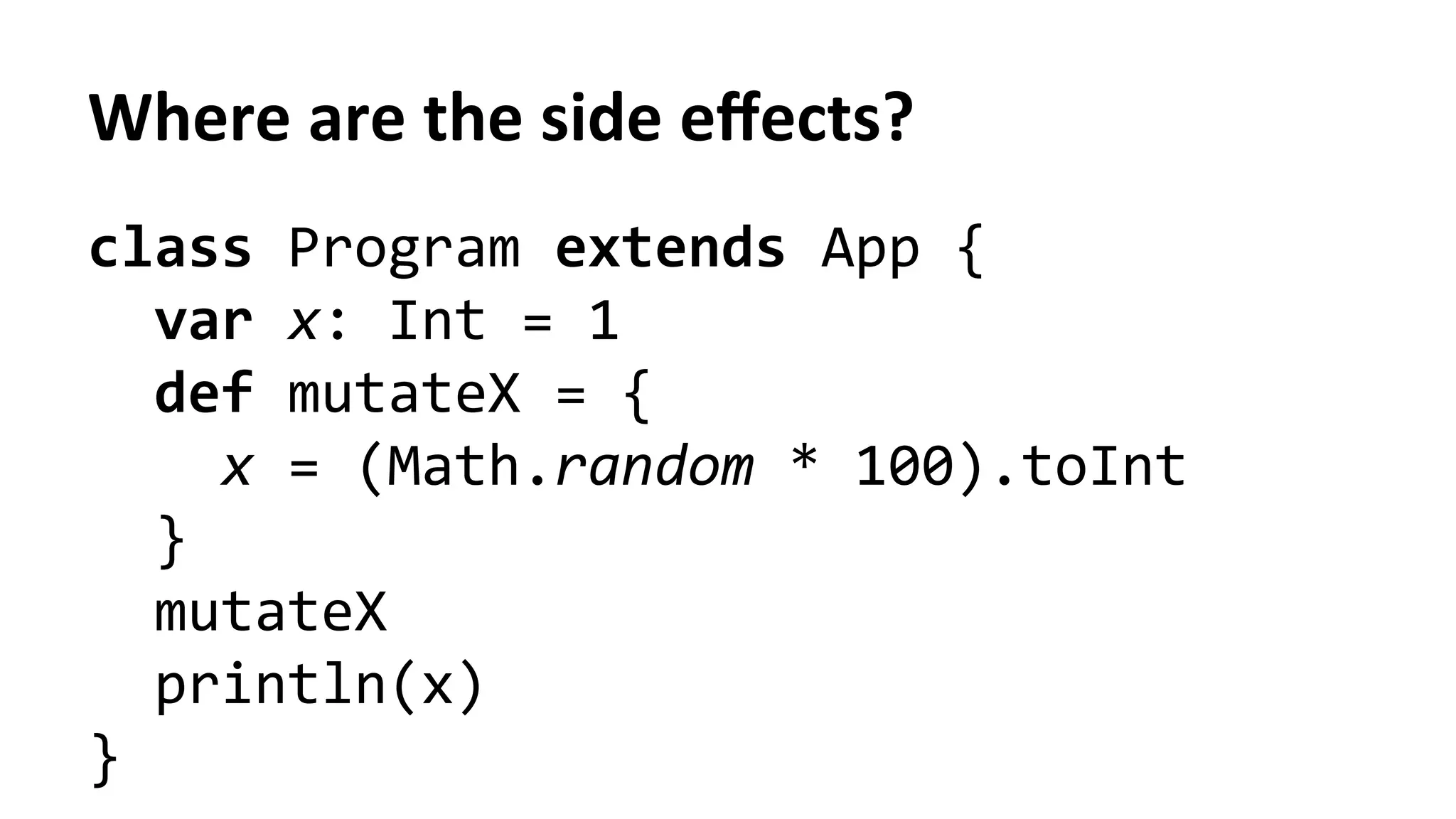
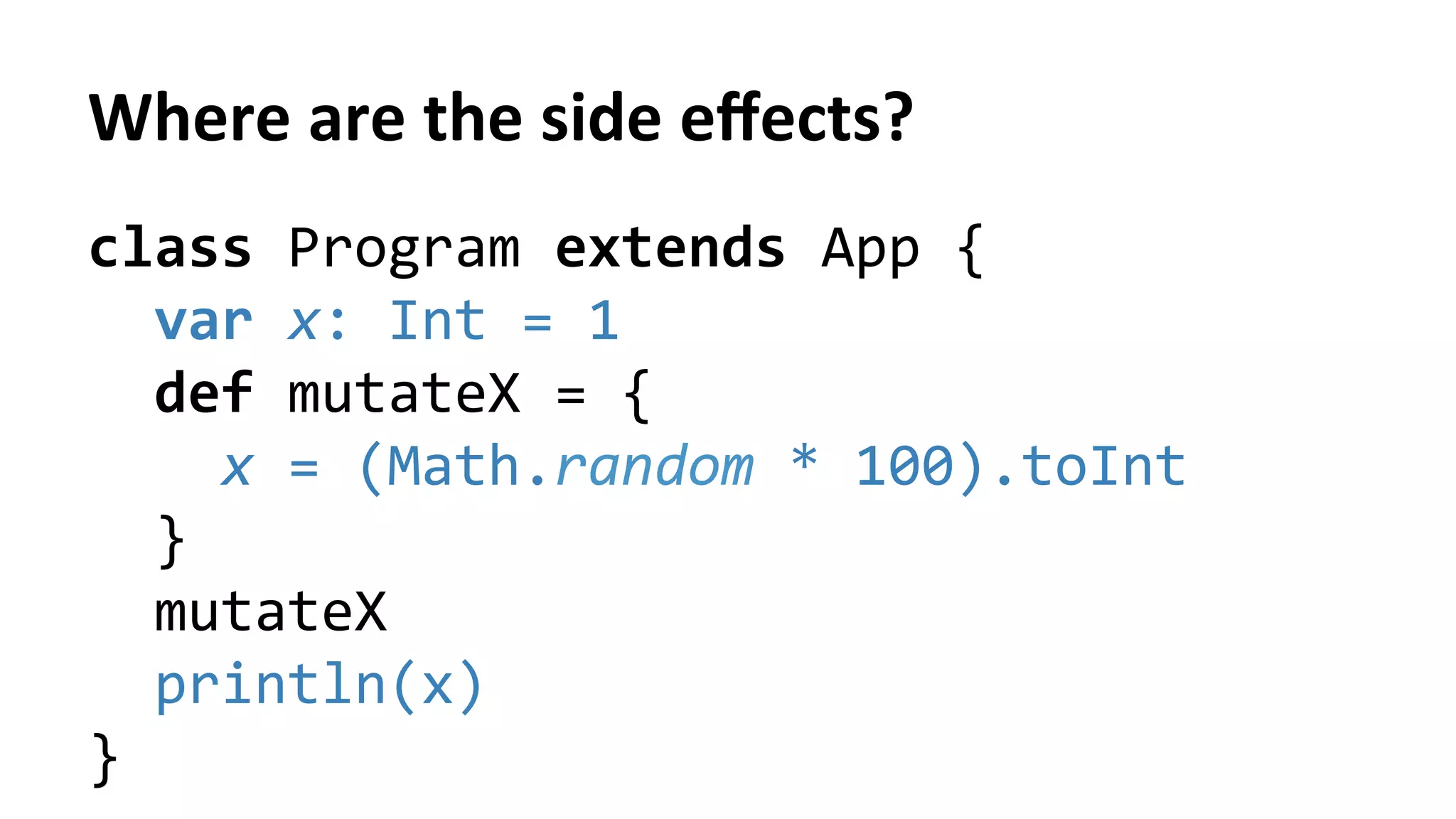
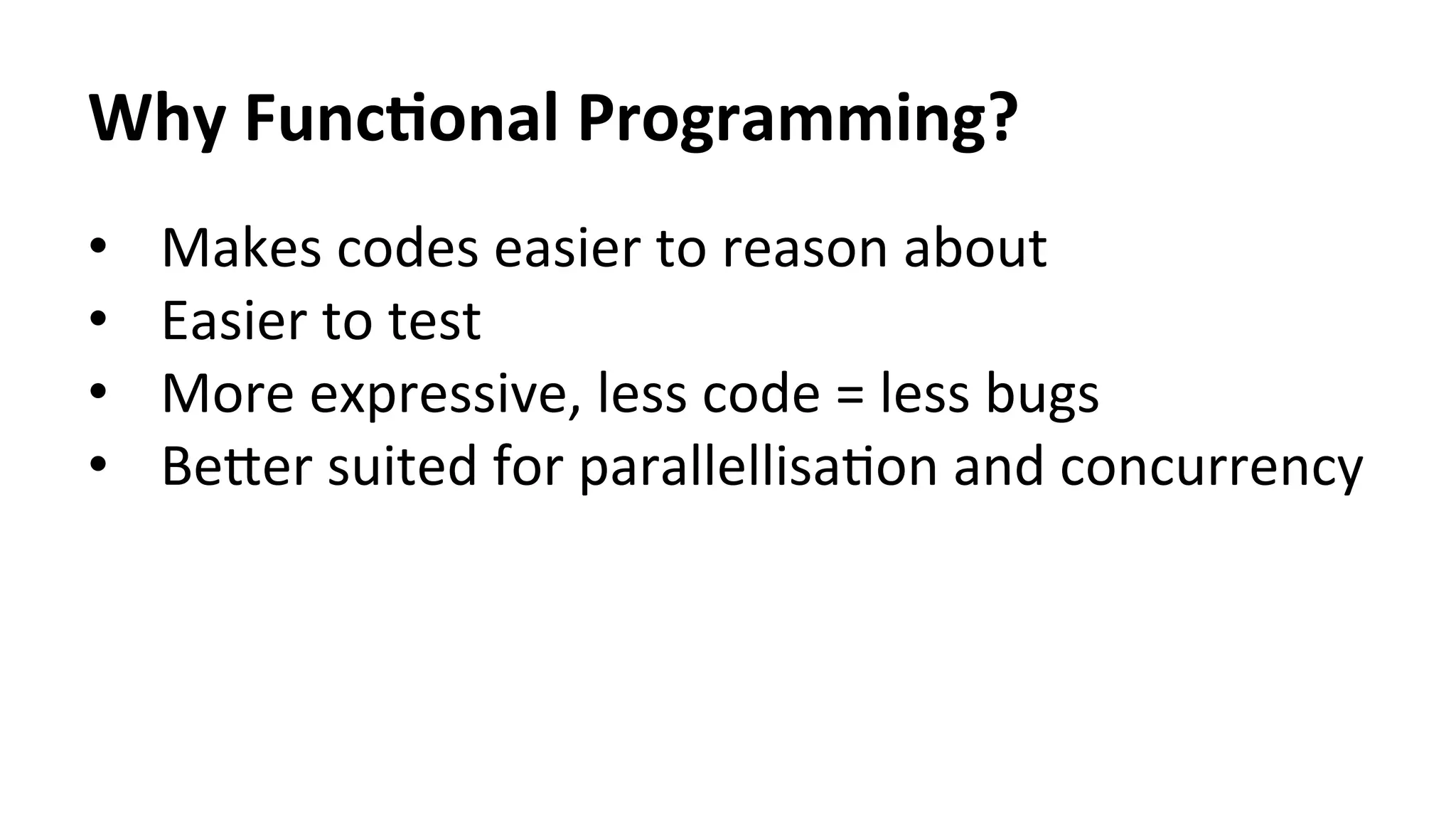
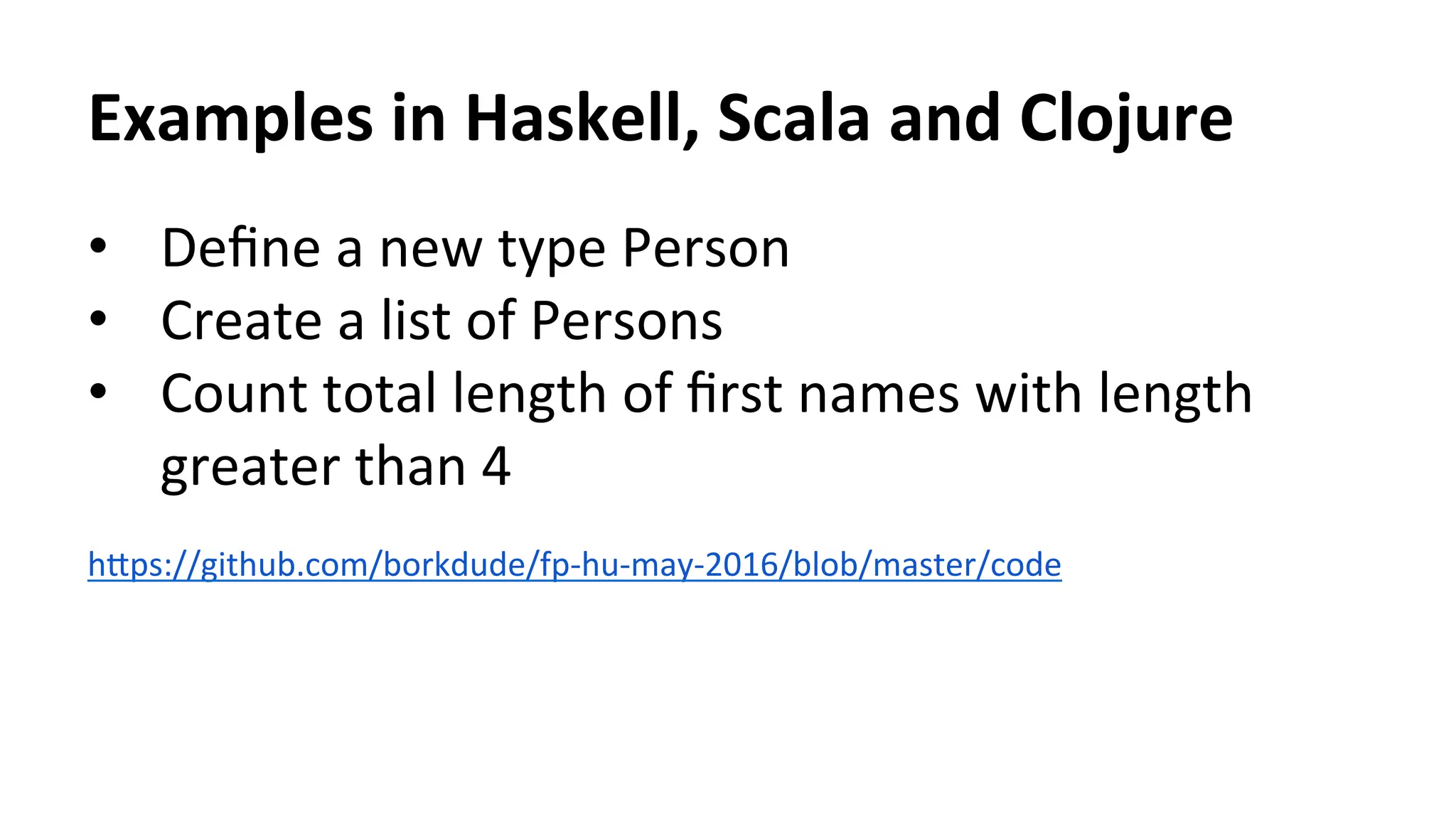
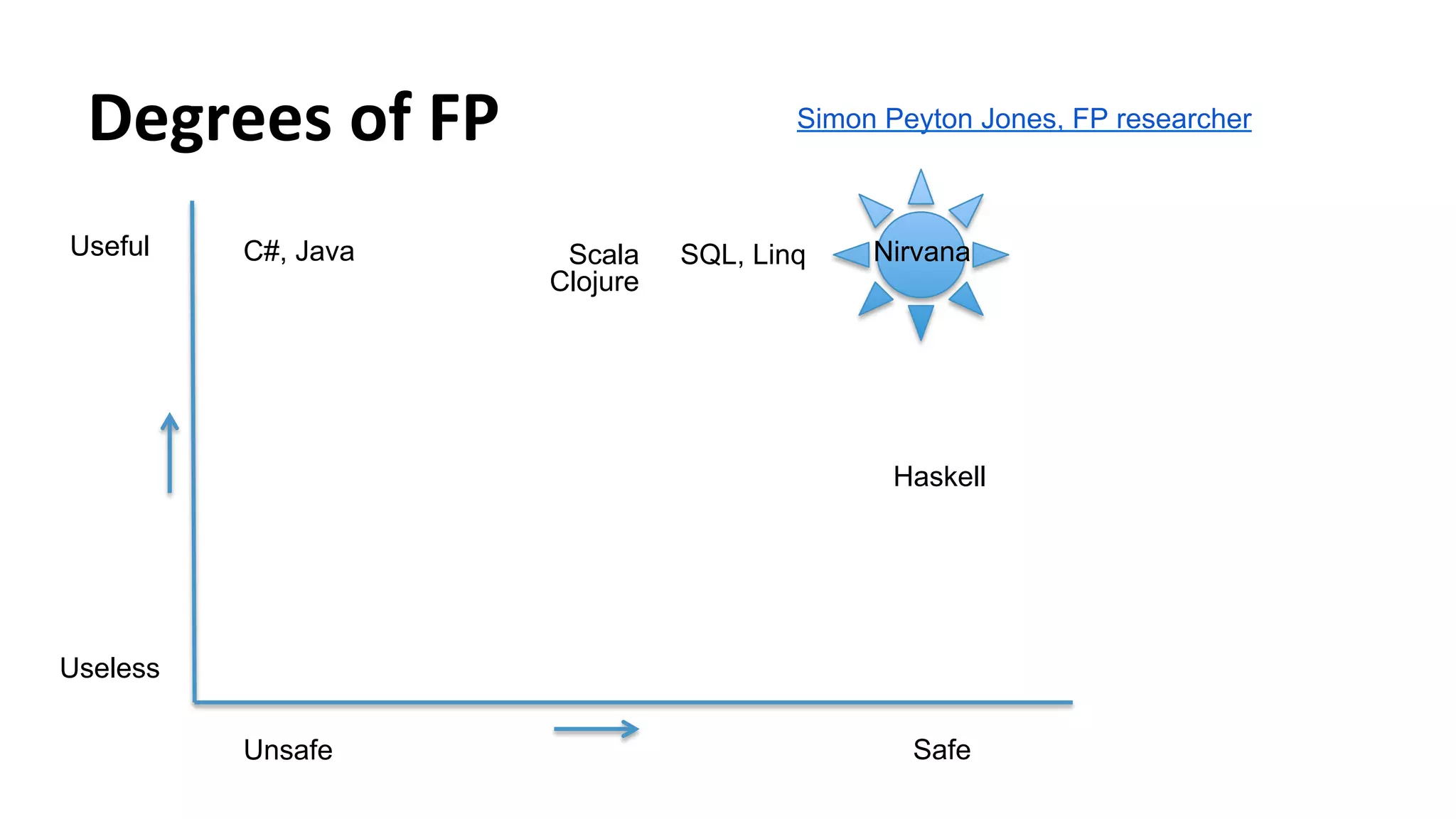
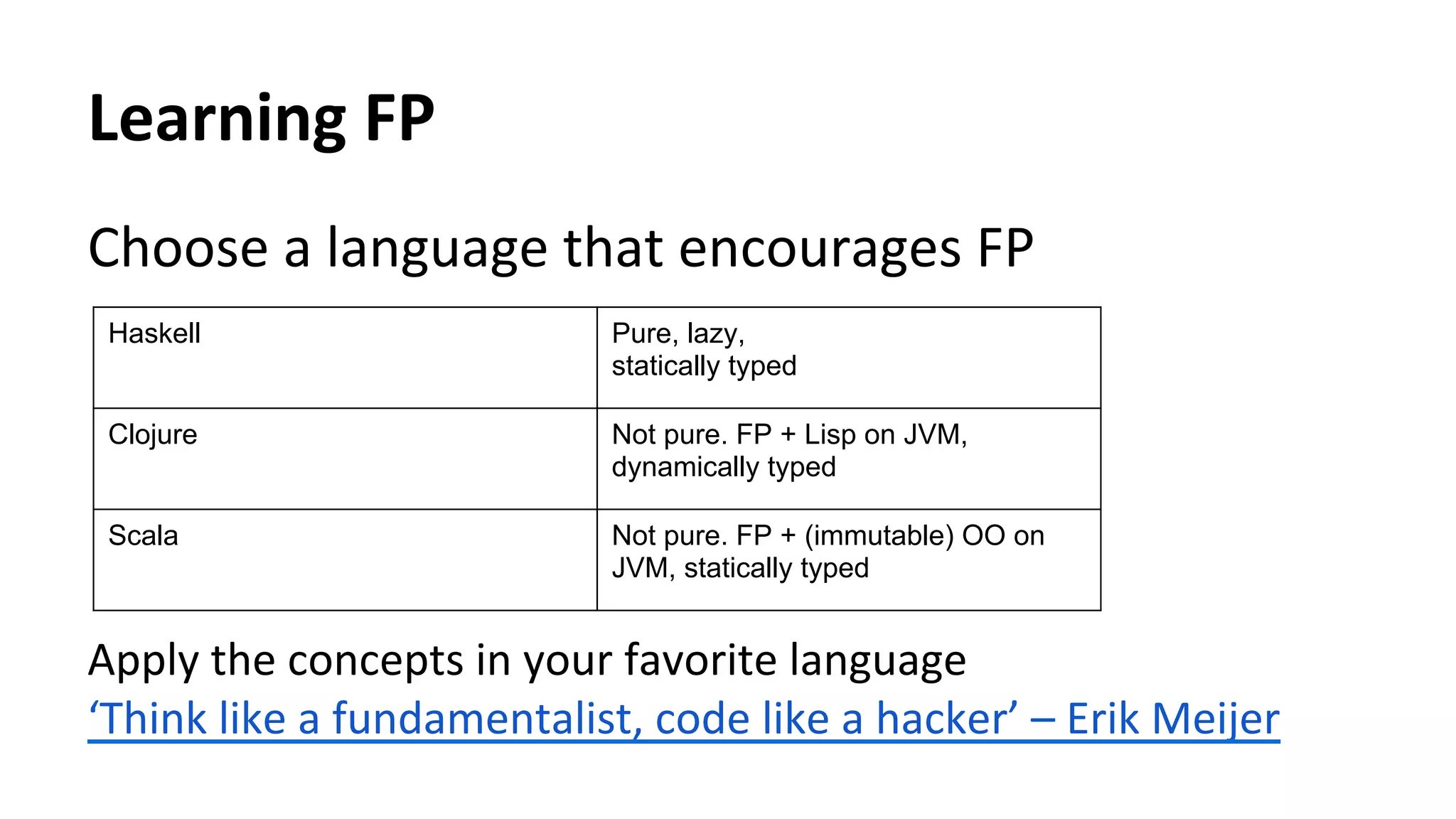
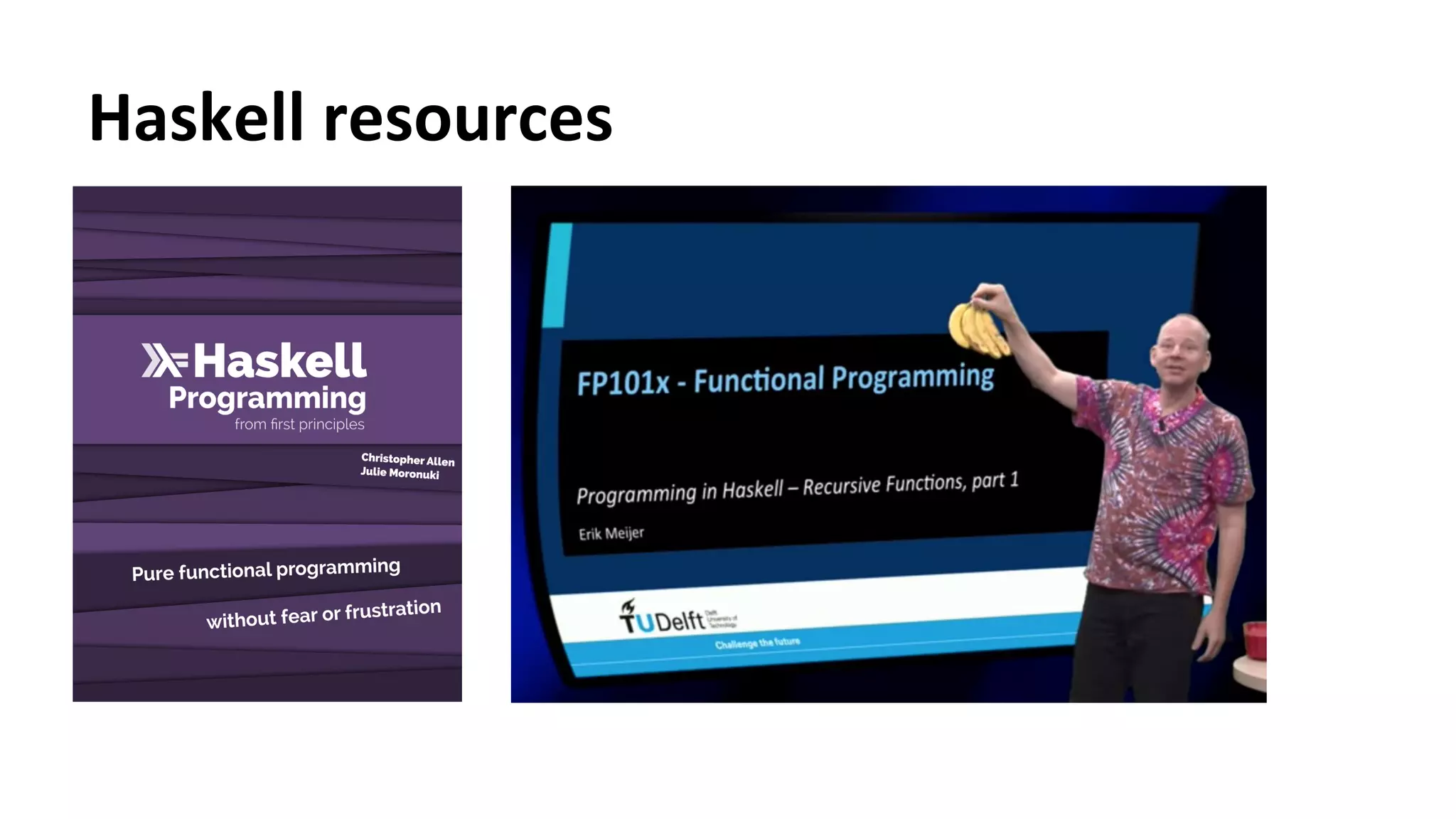
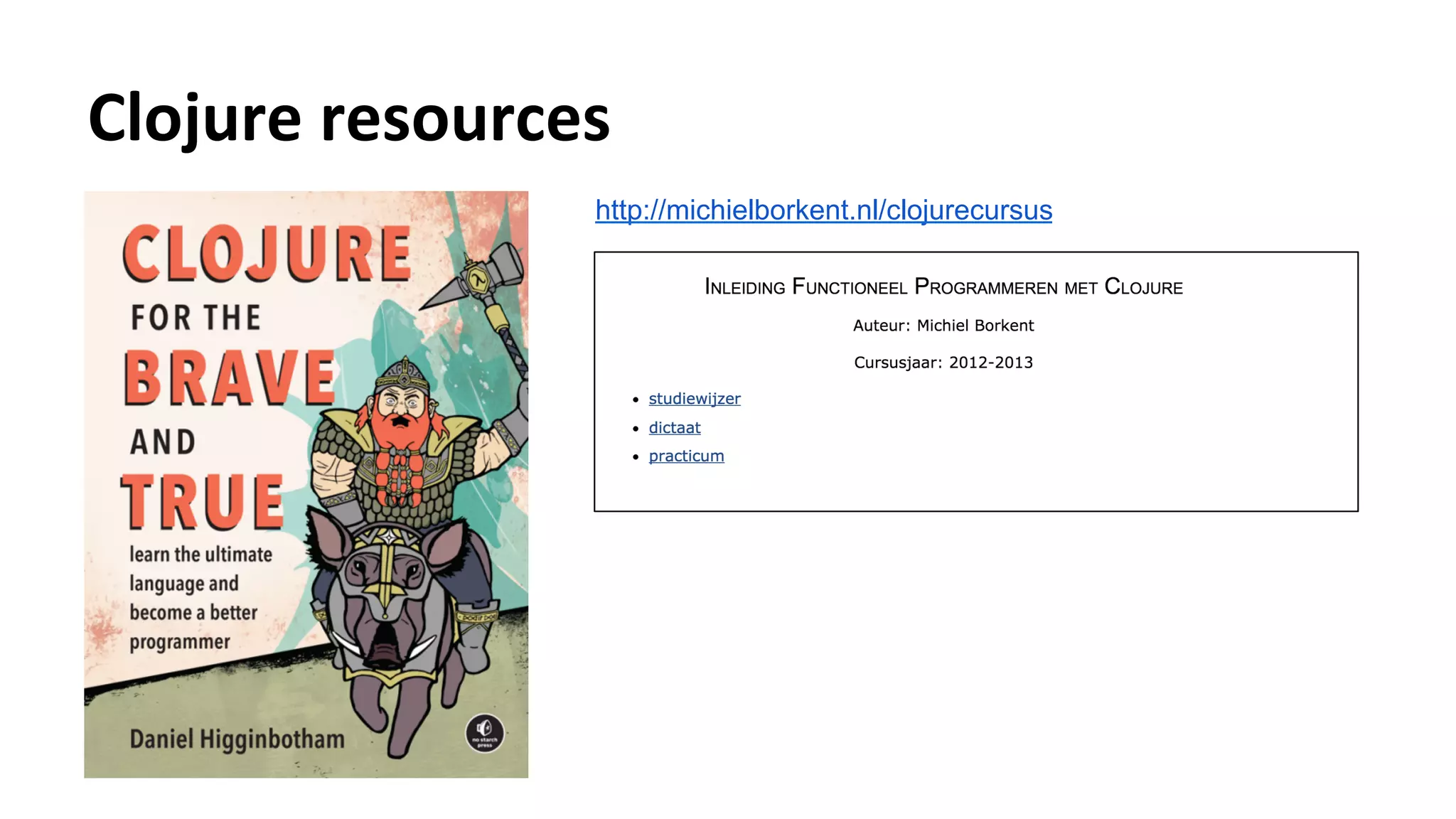
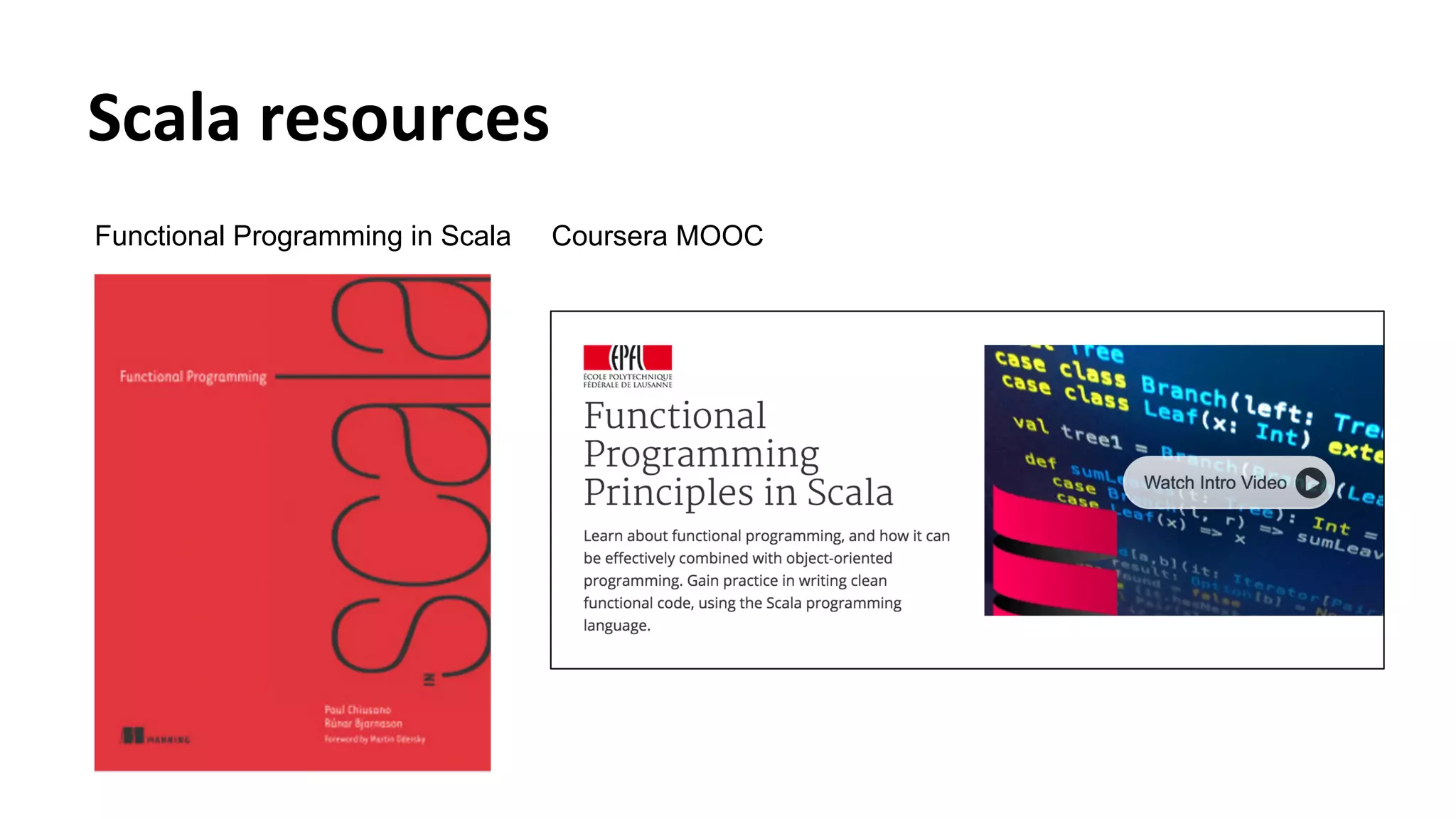
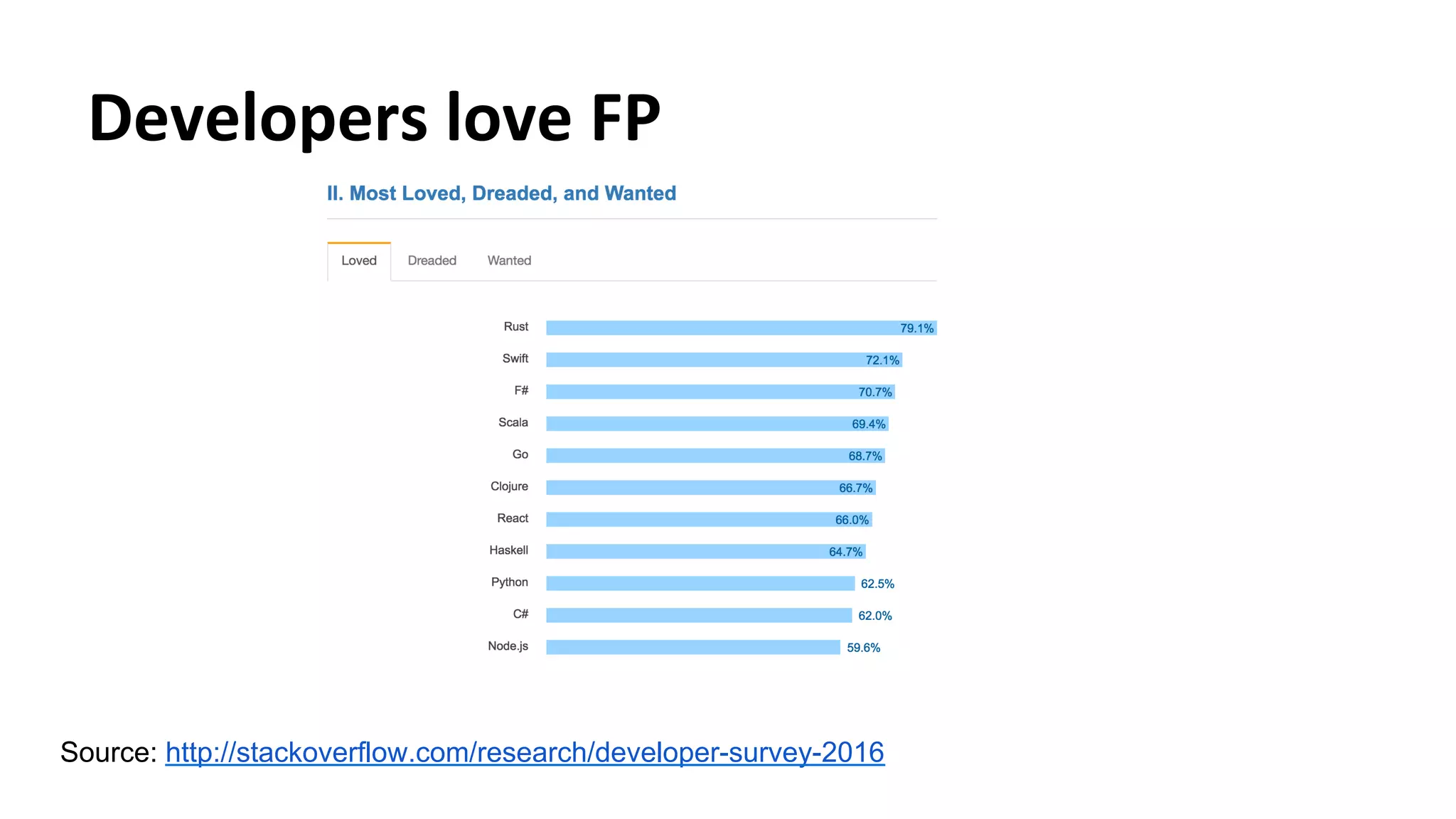
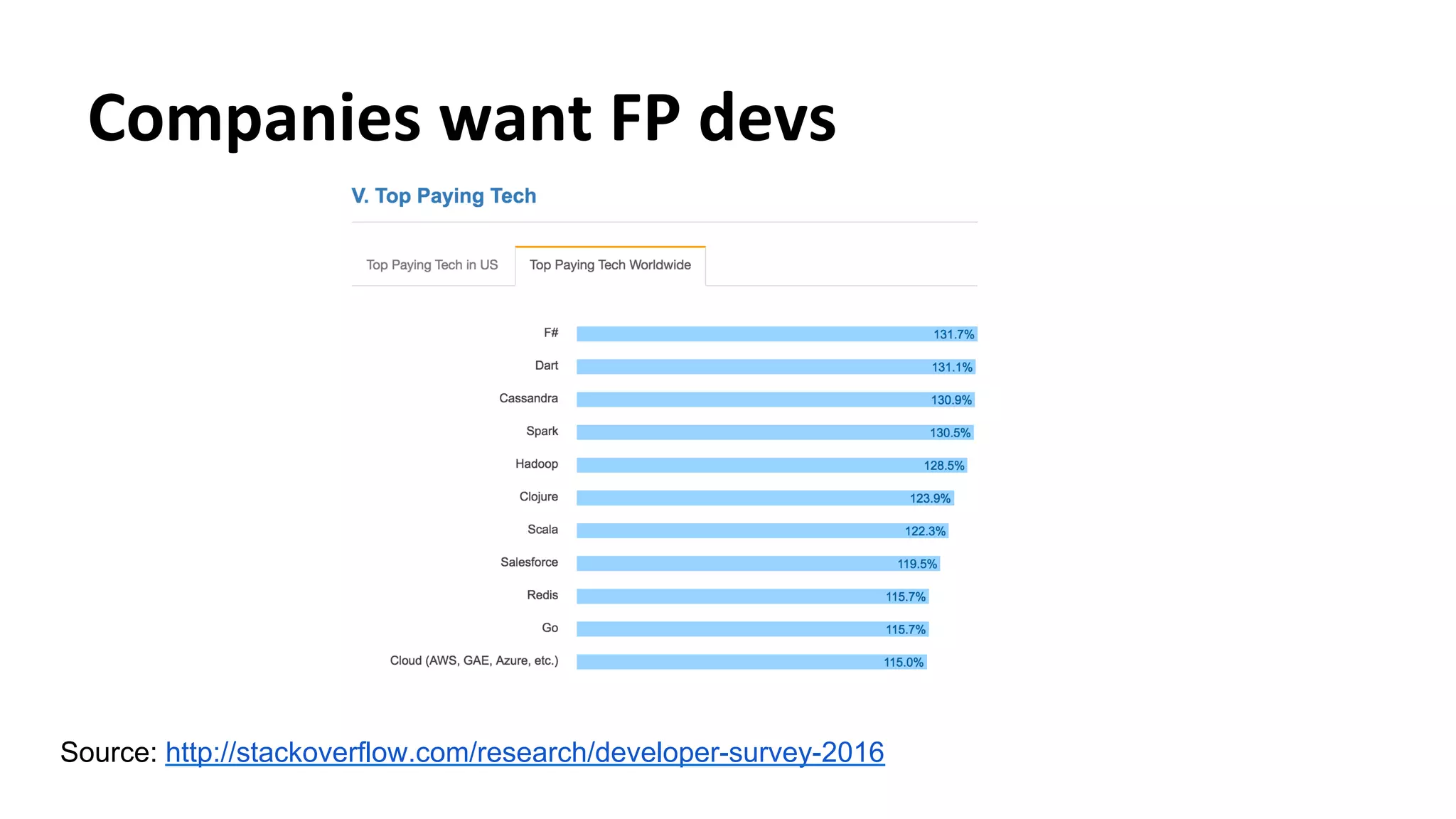
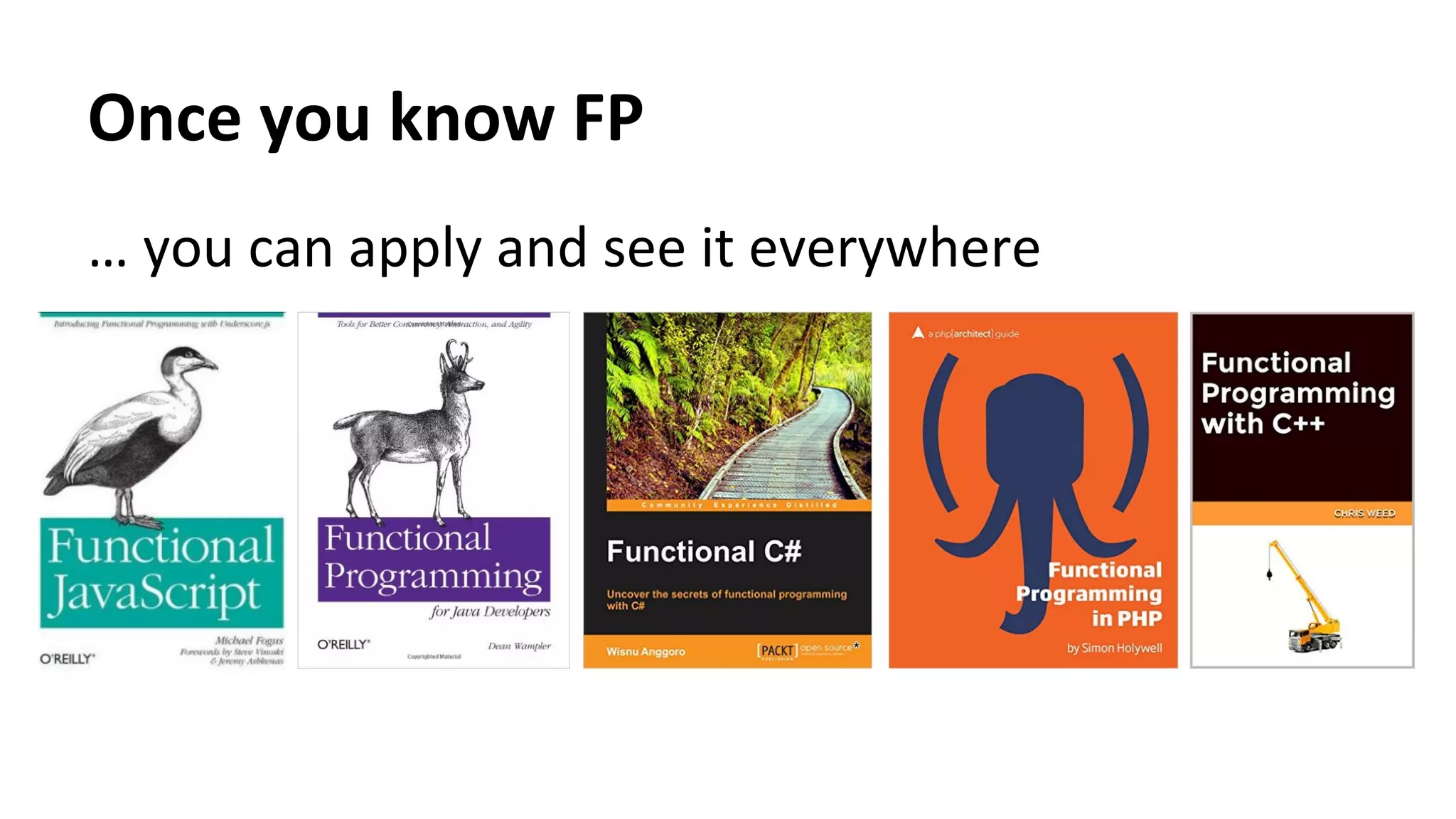
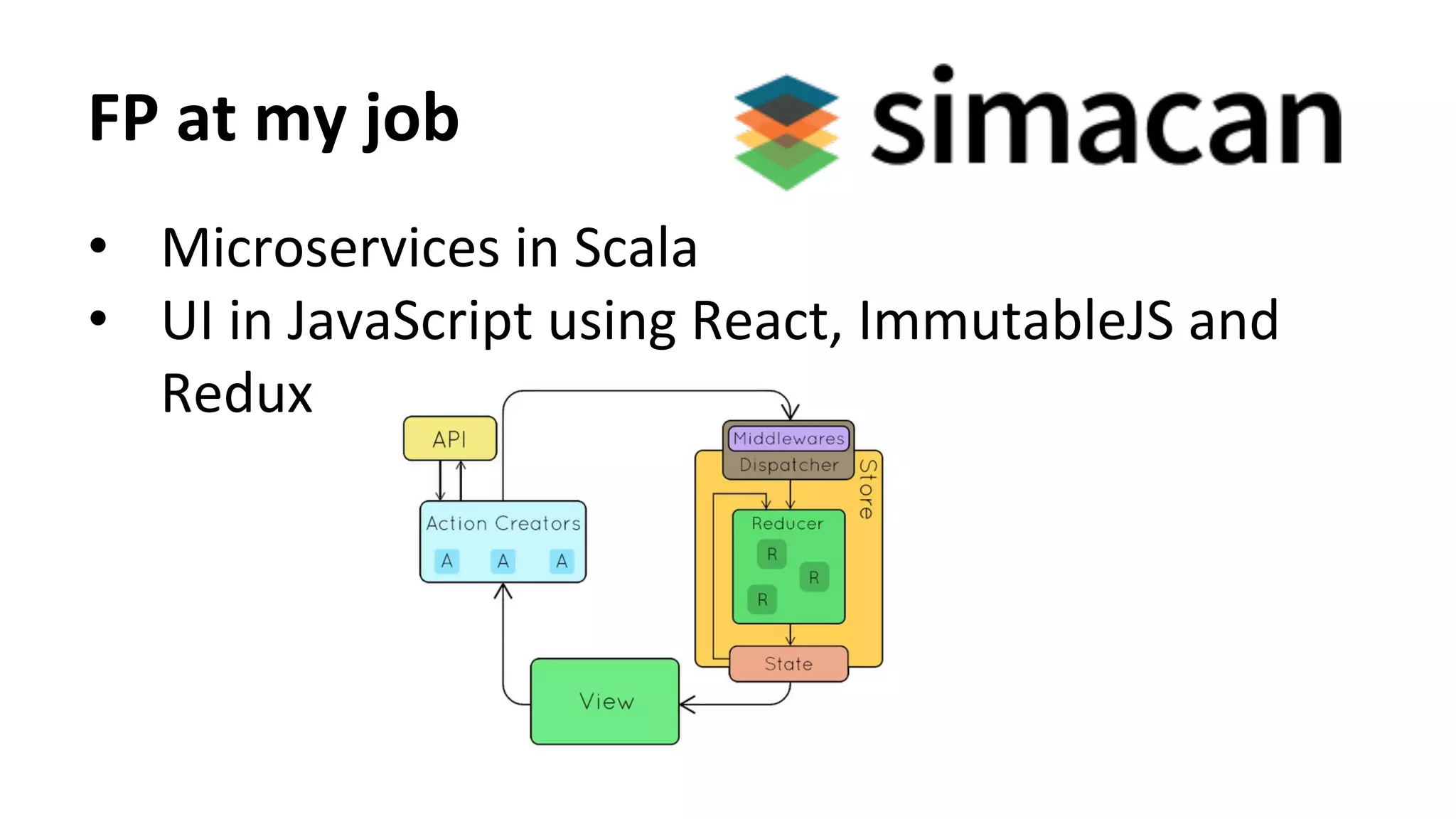

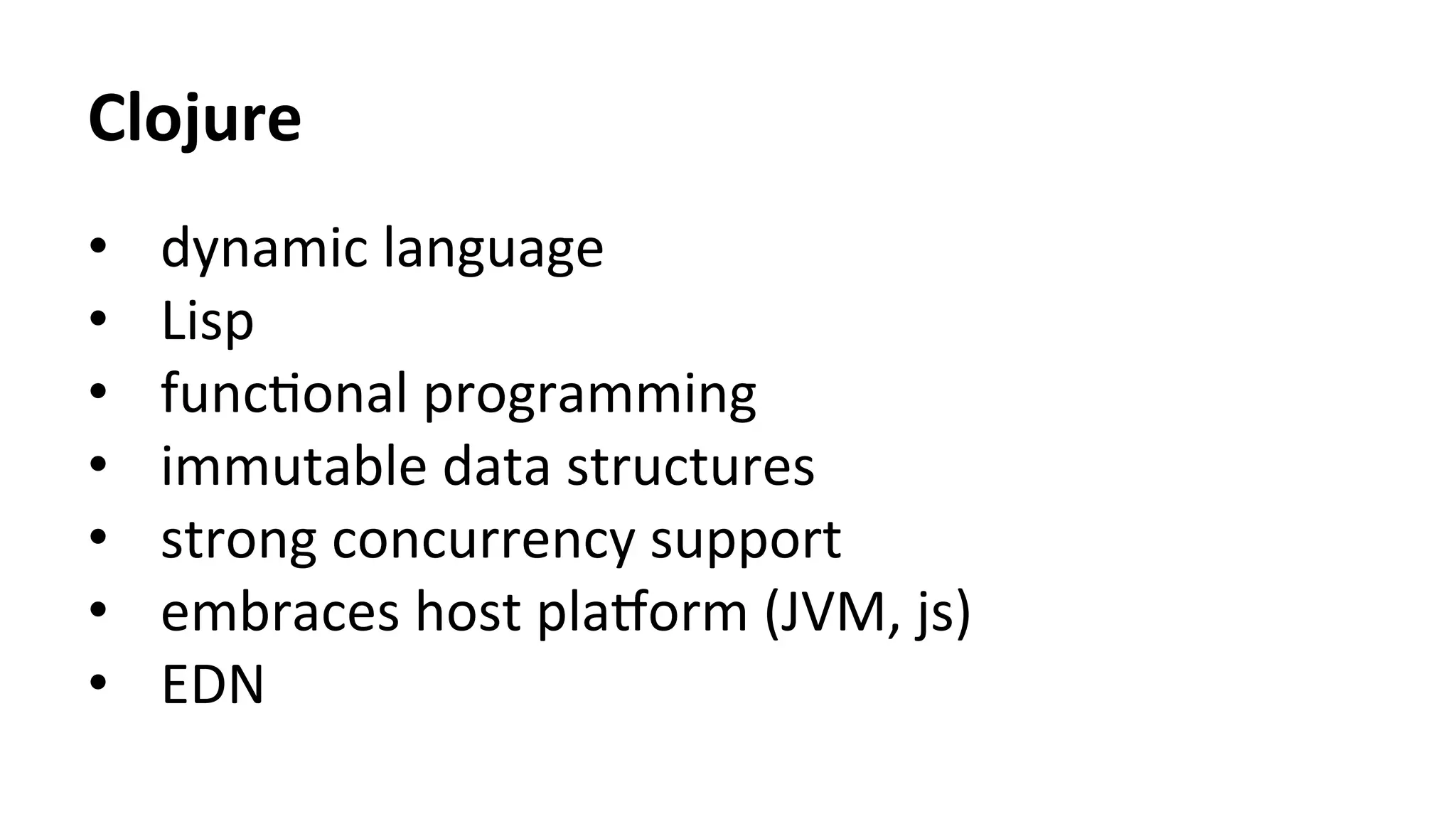

![Data literals Keyword: :a Vector: [1 2 3 4] Hash map: {:a 1, :b 2} Set: #{1 2 3 4} List: '(1 2 3 4)](https://image.slidesharecdn.com/hu-may-2016-160509160958/75/Functional-Programming-In-Practice-33-2048.jpg)
![Extensible Data Nota%on {:key1"Bar" :key2 [1 2 3] "key3", #{1.0 2.0 c} :key4,{:foo {:bar {:baz 'hello}}}} (pr-str {:foo "bar"}) (read-string "{:foo "bar"}")](https://image.slidesharecdn.com/hu-may-2016-160509160958/75/Functional-Programming-In-Practice-34-2048.jpg)
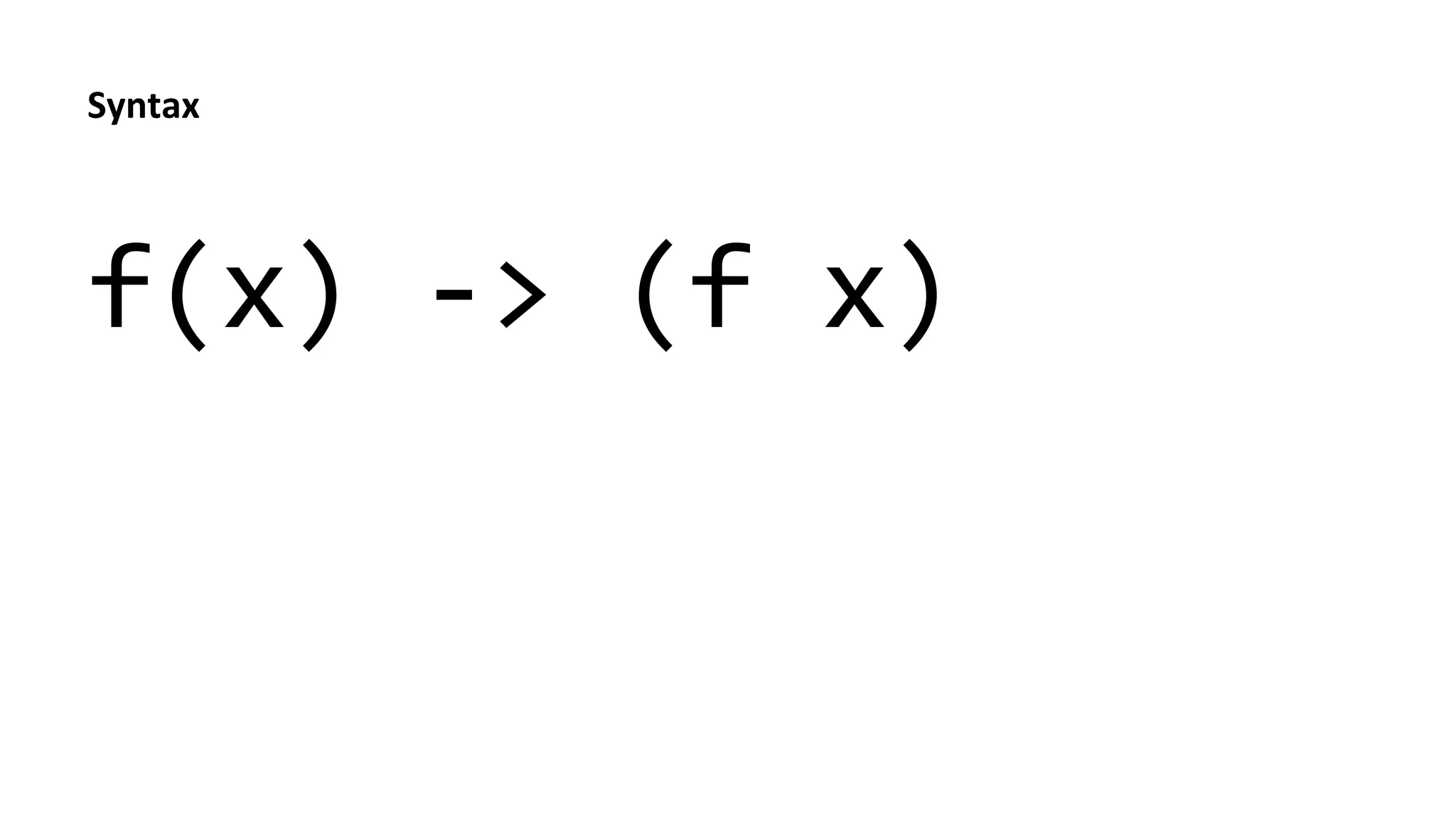
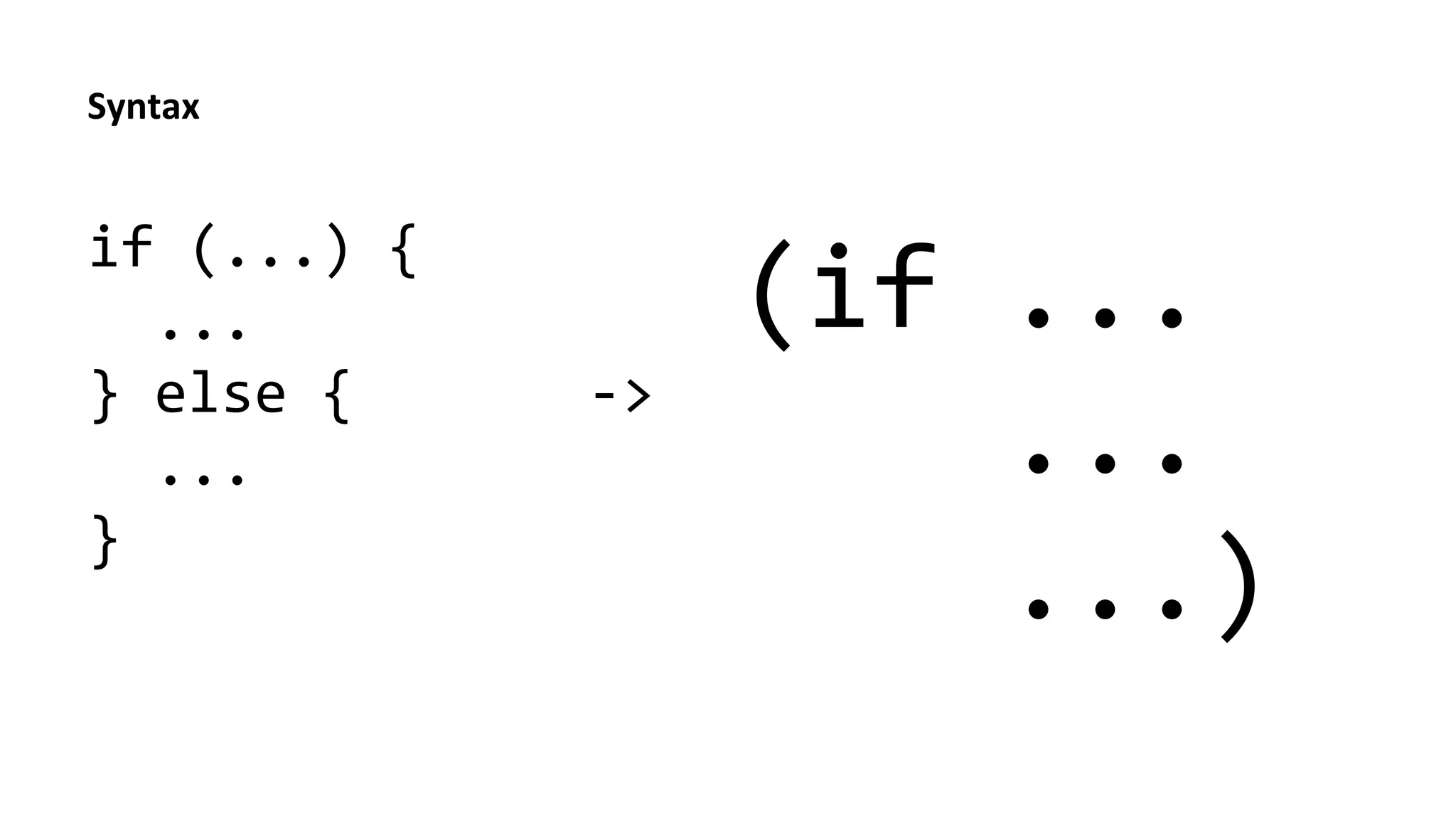
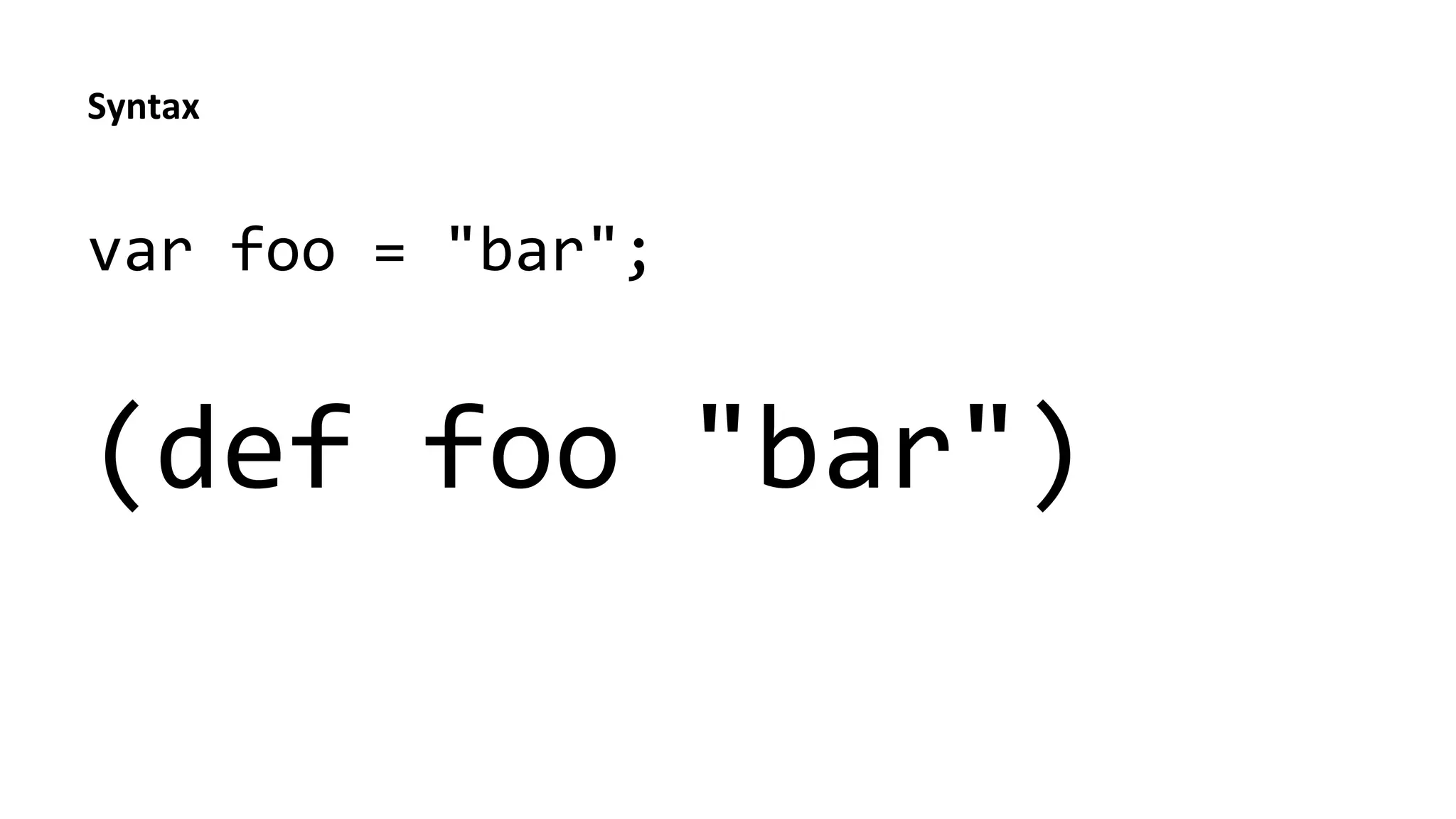
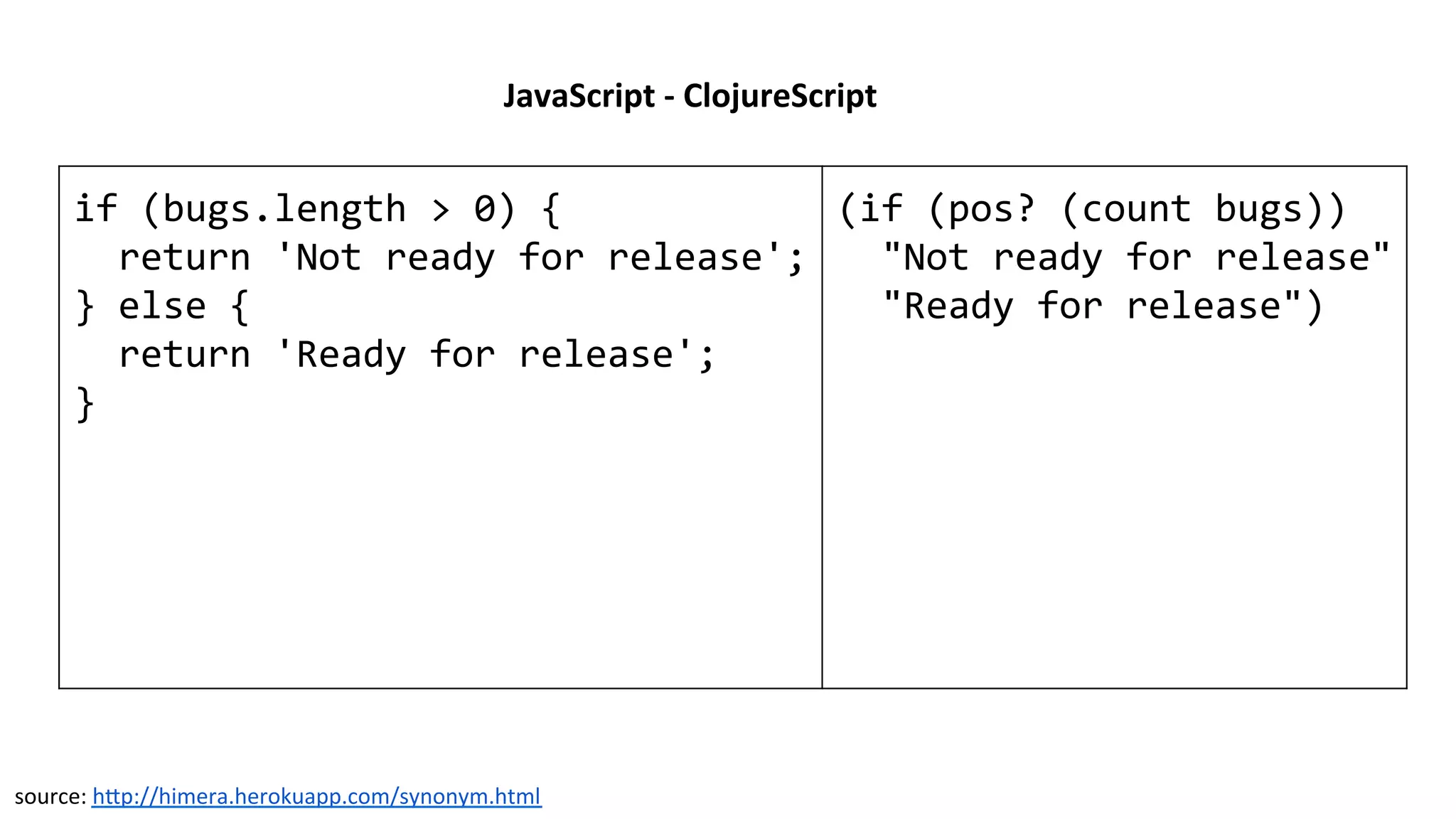
![JavaScript - ClojureScript var foo = {bar: "baz"}; foo.bar = "baz"; foo["abc"] = 17; alert('foo') new Date().getTime() new Date().getTime().toString() (def foo (js-obj "bar" "baz")) (set! (.-bar foo) "baz") (aset foo "abc" 17) (js/alert "foo") (.getTime (js/Date.)) (.. (js/Date.) (getTime) (toString)) source: hVp://himera.herokuapp.com/synonym.html](https://image.slidesharecdn.com/hu-may-2016-160509160958/75/Functional-Programming-In-Practice-39-2048.jpg)
![Persistent data structures (def v [1 2 3]) (conj v 4) ;; => [1 2 3 4] (get v 0) ;; => 1 (v 0) ;; => 1](https://image.slidesharecdn.com/hu-may-2016-160509160958/75/Functional-Programming-In-Practice-40-2048.jpg)
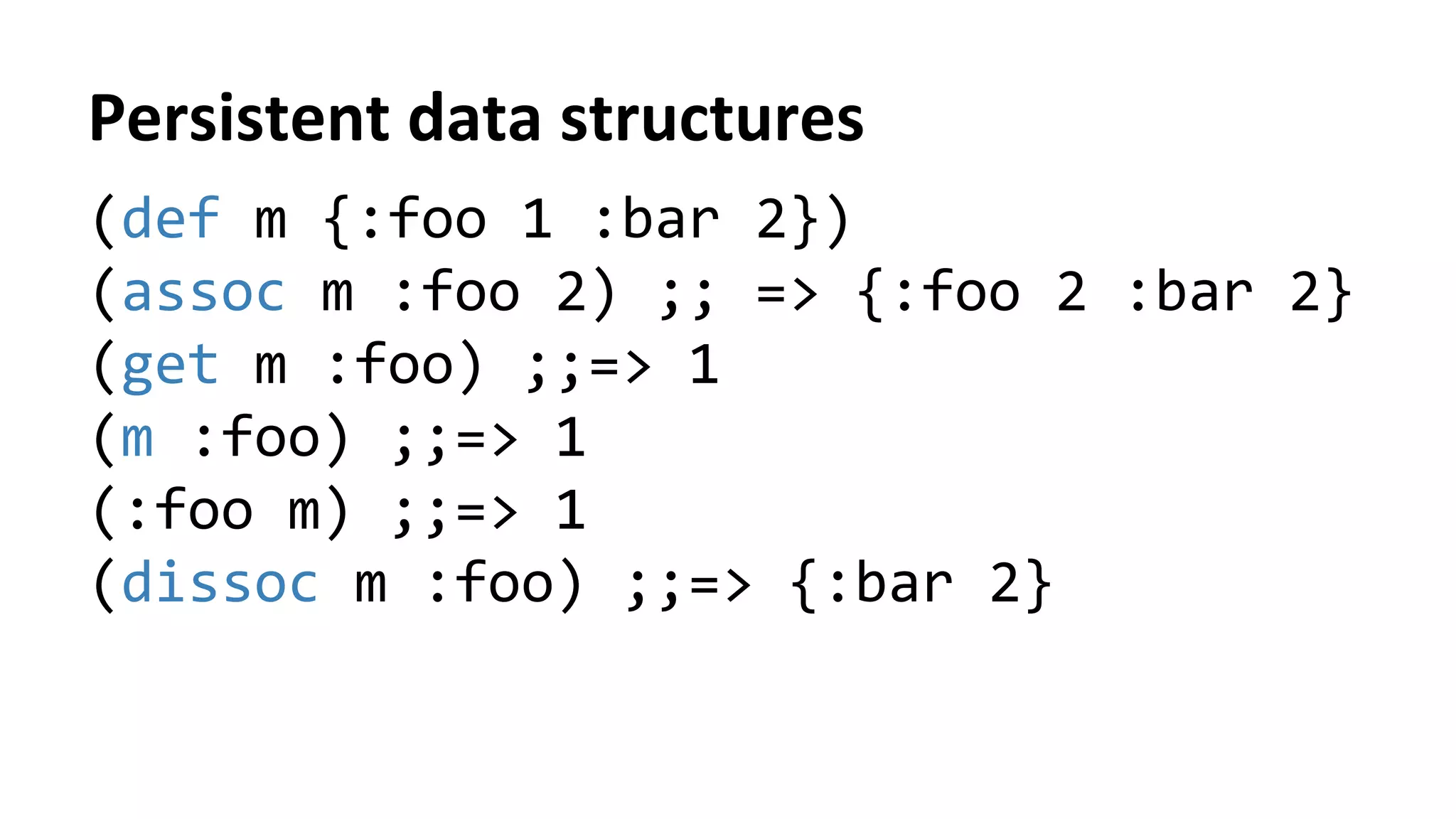
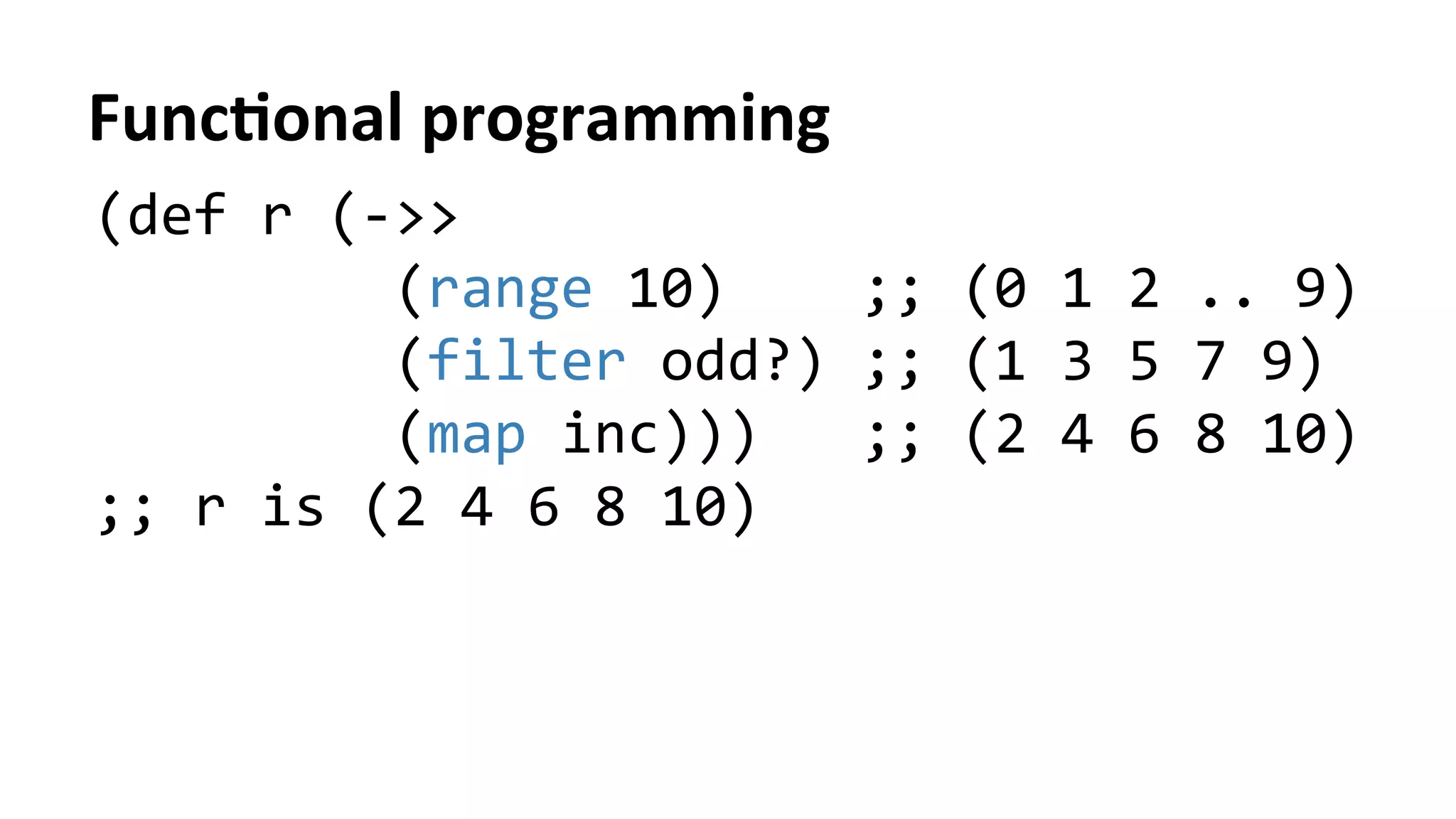
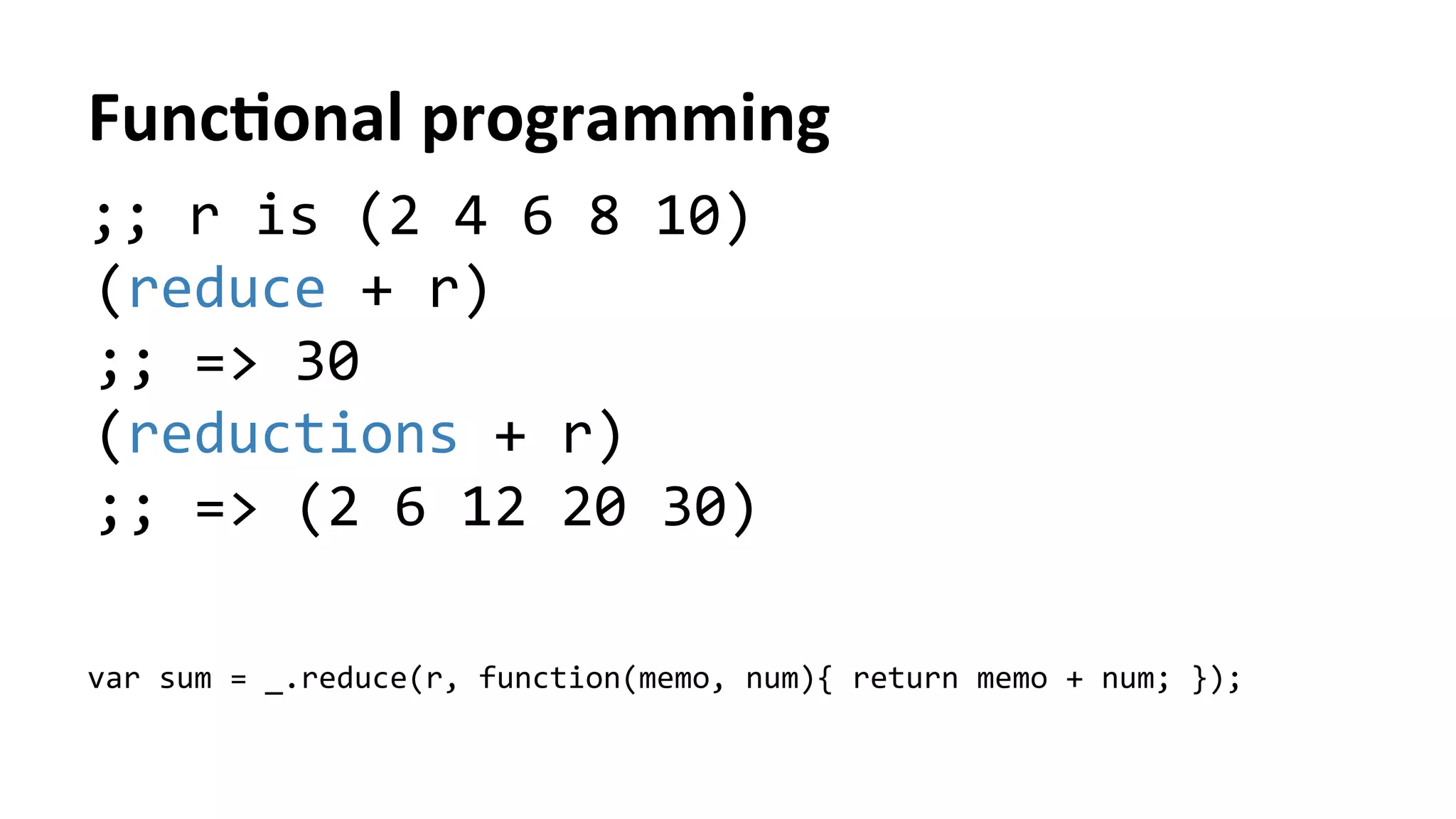
![Sequence abstrac%on Data structures as seqs (first [1 2 3]) ;;=> 1 (rest [1 2 3]) ;;=> (2 3) General seq func>ons: map, reduce, filter, ... (distinct [1 1 2 3]) ;;=> (1 2 3) (take 2 (range 10)) ;;=> (0 1) See hVp://clojure.org/cheatsheet for more](https://image.slidesharecdn.com/hu-may-2016-160509160958/75/Functional-Programming-In-Practice-44-2048.jpg)
![Sequence abstrac%on Most seq func>ons return lazy sequences: (take 2 (map (fn [n] (js/alert n) n) (range))) infinite lazy sequence of numbers side effect](https://image.slidesharecdn.com/hu-may-2016-160509160958/75/Functional-Programming-In-Practice-45-2048.jpg)
![Mutable state: atoms (def my-atom (atom 0)) @my-atom ;; 0 (reset! my-atom 1) (reset! my-atom (inc @my-atom)) ;; bad idiom (swap! my-atom (fn [old-value] (inc old-value))) (swap! my-atom inc) ;; same @my-atom ;; 4](https://image.slidesharecdn.com/hu-may-2016-160509160958/75/Functional-Programming-In-Practice-46-2048.jpg)
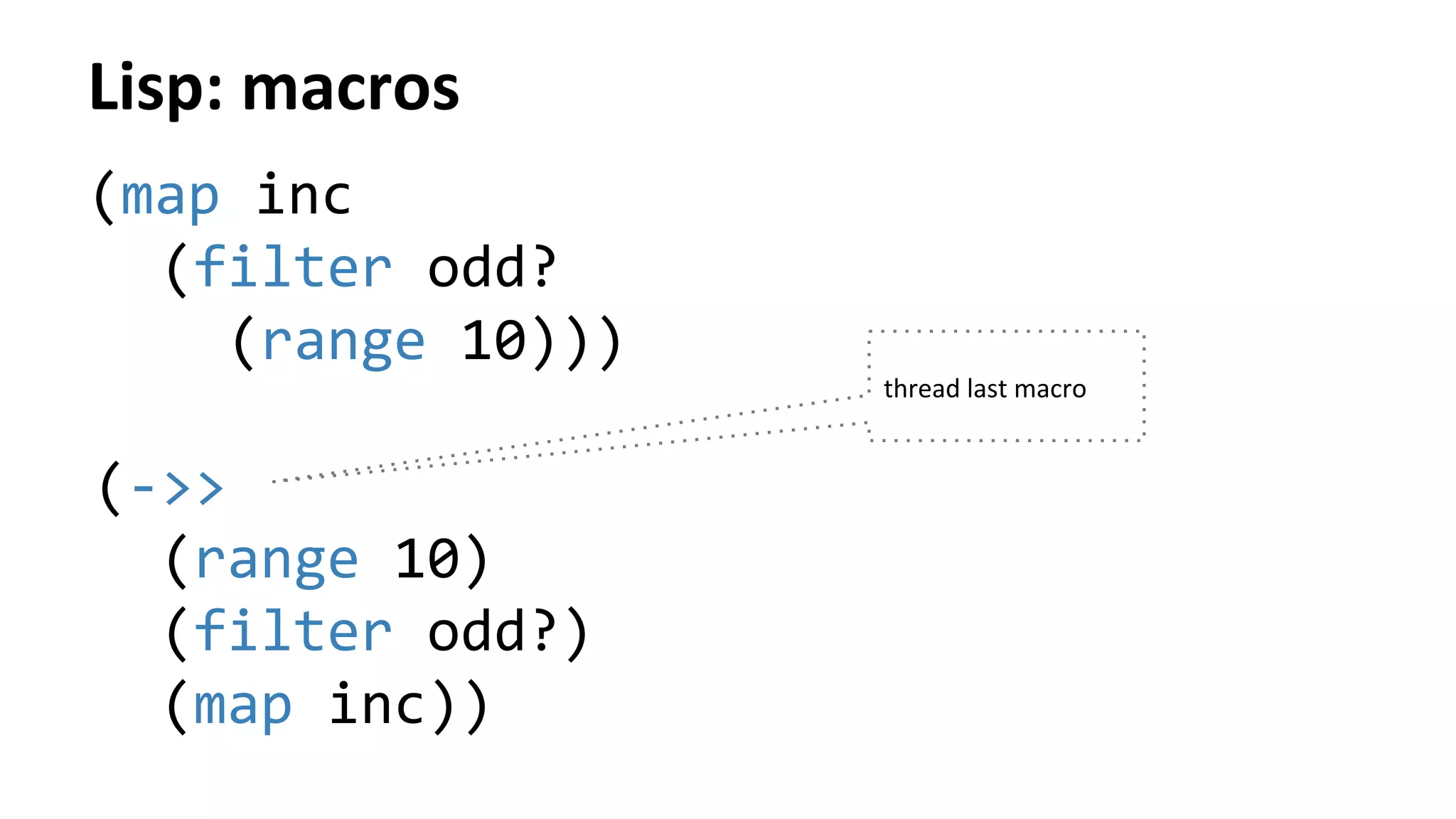
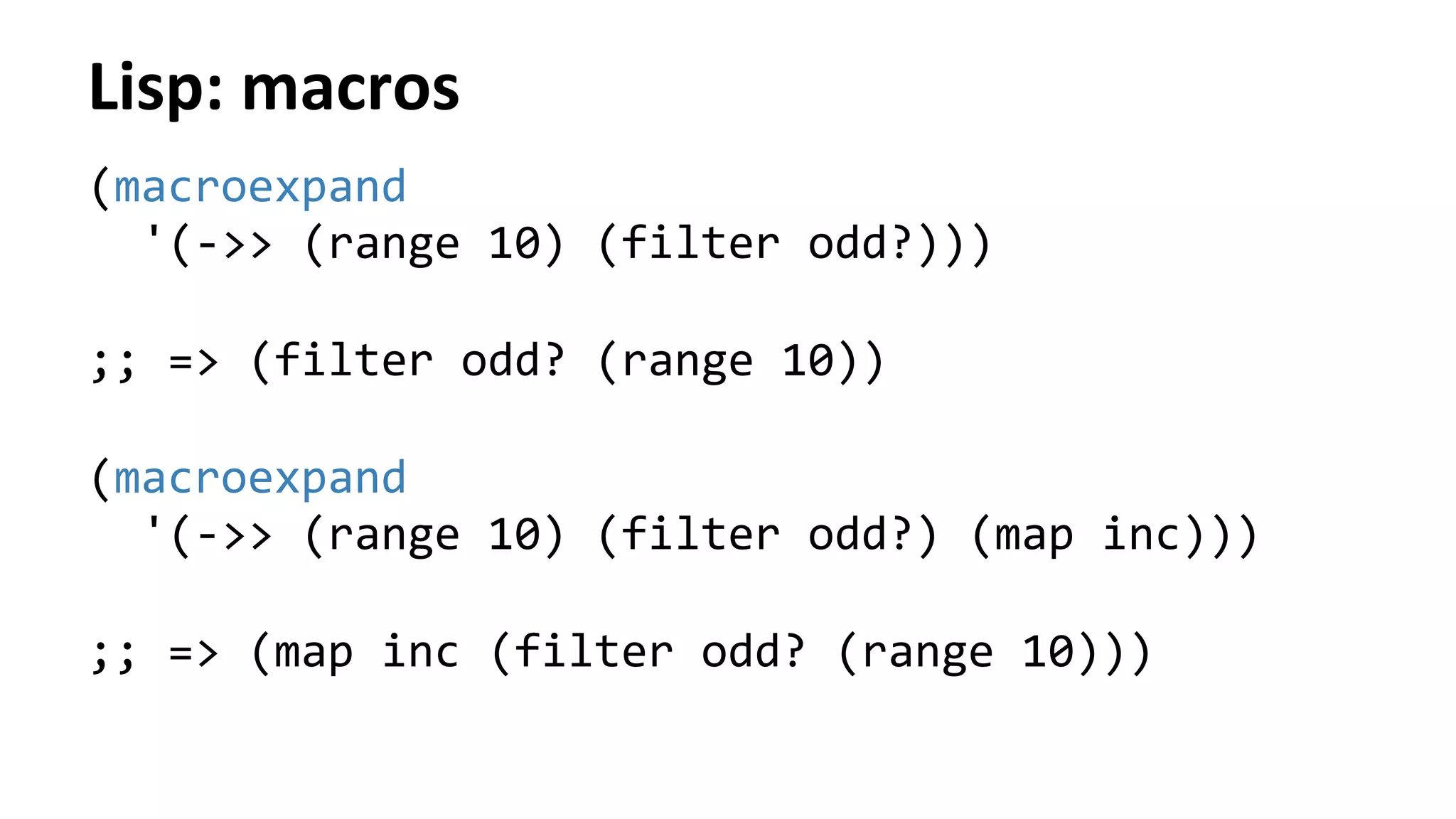
![Lisp: macros JVM Clojure: (defmacro defonce [x init] `(when-not (exists? ~x) (def ~x ~init))) ClojureScript: (defonce foo 1) (defonce foo 2) ;; no effect notes: ● macros must be wriVen in JVM Clojure ● are expanded at compile >me ● generated code gets executes in ClojureScript](https://image.slidesharecdn.com/hu-may-2016-160509160958/75/Functional-Programming-In-Practice-49-2048.jpg)
